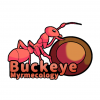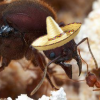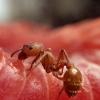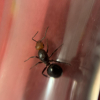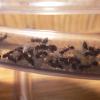- Formiculture.com
- Forums
- Gallery
- Members
- Member Map
- Chat
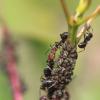
AnthonyP163's Parasitic Lasius Journal
Started By
AnthonyP163
, Mar 26 2018 7:08 PM
lasius parasite lasius parasite
94 replies to this topic
#61
 Offline
-
Posted April 15 2020 - 2:44 AM
Offline
-
Posted April 15 2020 - 2:44 AM
That’s awesome, man.
"The ants are a people not strong, yet they prepare their meat in the summer." Prov. 30:25
Keep ordinary ants in extraordinary ways.
Keep ordinary ants in extraordinary ways.
#62
 Offline
-
Posted April 15 2020 - 11:43 AM
Offline
-
Posted April 15 2020 - 11:43 AM
I have a lasius queen with workers and she isn't laying eggs, they ignore protein should i try to give them some lasius brood? to try to get them to accept protein?
#63
 Offline
-
Posted April 15 2020 - 11:53 AM
Offline
-
Posted April 15 2020 - 11:53 AM
If they won’t accept it now, they probably don’t need it at the moment.
"God made..... all the creatures that move along the ground according to their kinds (including ants). And God saw that it was good. Genesis 1:25 NIV version
Keeping:
Formica cf. pallidefulva, cf. incerta, cf. argentea
Formica cf. aserva, cf. subintegra
Myrmica sp.
Lasius neoniger, brevicornis
#64
 Offline
-
Posted April 19 2020 - 2:44 PM
Offline
-
Posted April 19 2020 - 2:44 PM
4/19/20
Over the past few days, it has warmed up again and I have been catching Lasius parasite queens, as well as host workers. I once again couldn't find any americanus or neoniger hosts so I had to use ~25 claviger workers I found. To say the least, it was unsuccessful. L. claviger seem to have a high tolerance to queens, but this doesn't mean they actually accept them. I caught 5 speculiventris queens and introduced a few of them to some claviger workers and it would always seem to be going well until the queen randomly gets attacked.
Today, I went to the forest and collected a few dozen americanus workers. I am currently introducing two speculiventris queens to them. I must say that speculiventris can have very interesting color variation and it's awesome. The Lasius claviger dual queen and one queen colony haven't laid eggs. I have two small L. speculiventris queens with 12-20 workers, one of which I founded by accident when I put her in a tube with a worker. None of the smaller colonies laid eggs, and it's probably due to them not having enough workers. Perhaps some of them will eventually lay, and if they don't, I can collect pupae when the time is right in the summer.
I noticed some of the queens killing workers and then breaking them up and eating/licking them, I assume this is to take their scent or something related.
Here are some pictures
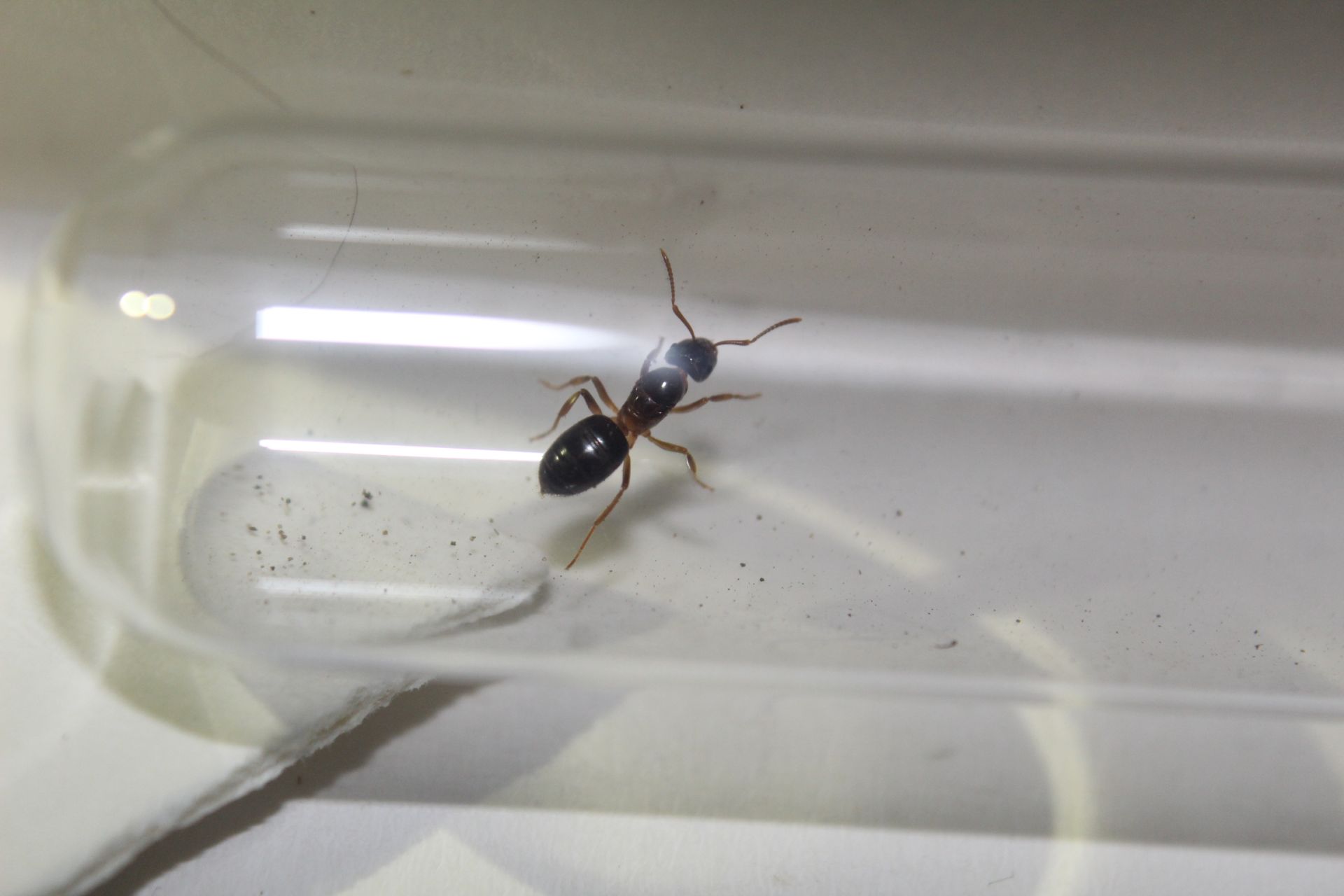
The picture below is a speculiventris worker with her mandibles open for some reason
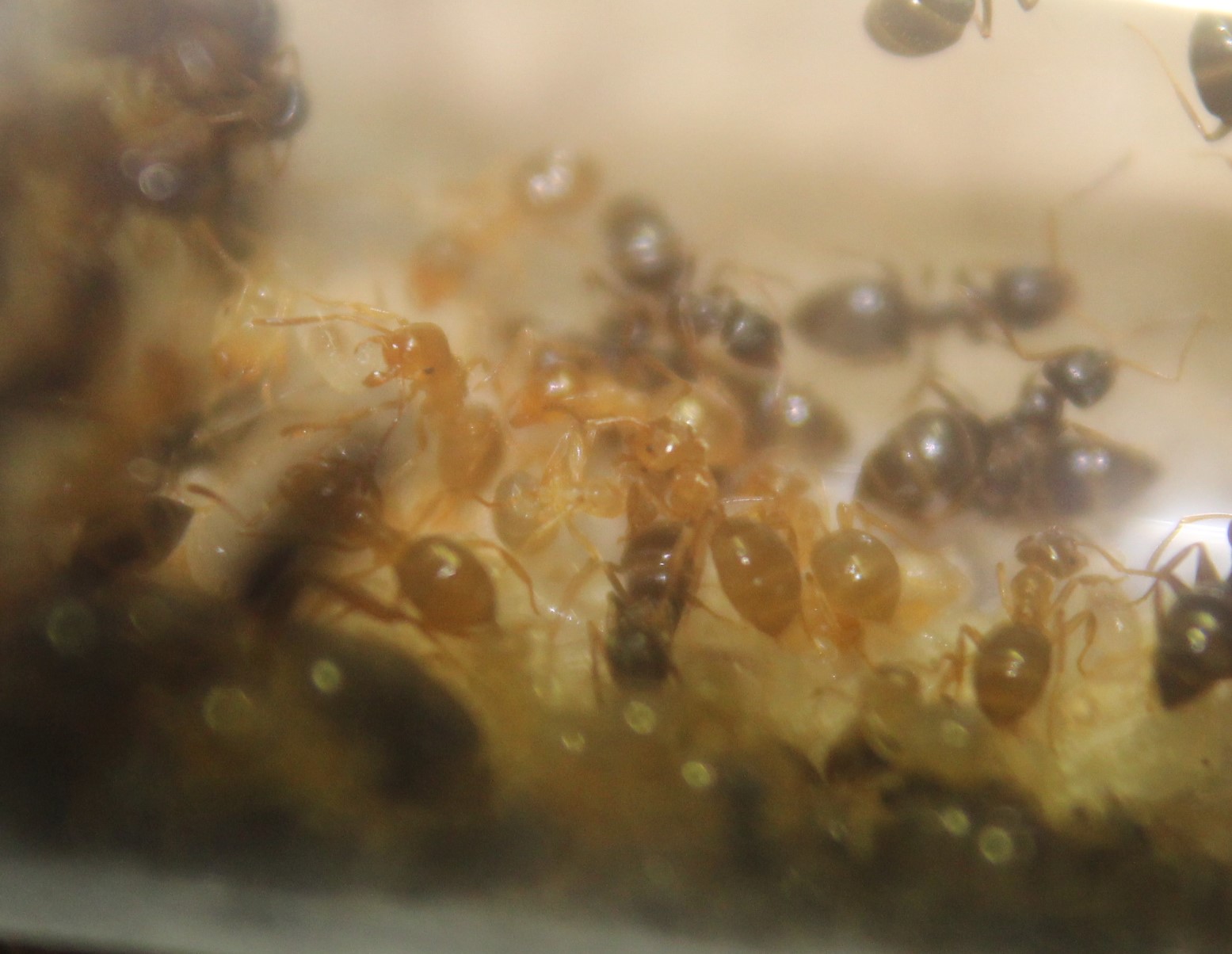
Lasius claviger during failed introductions
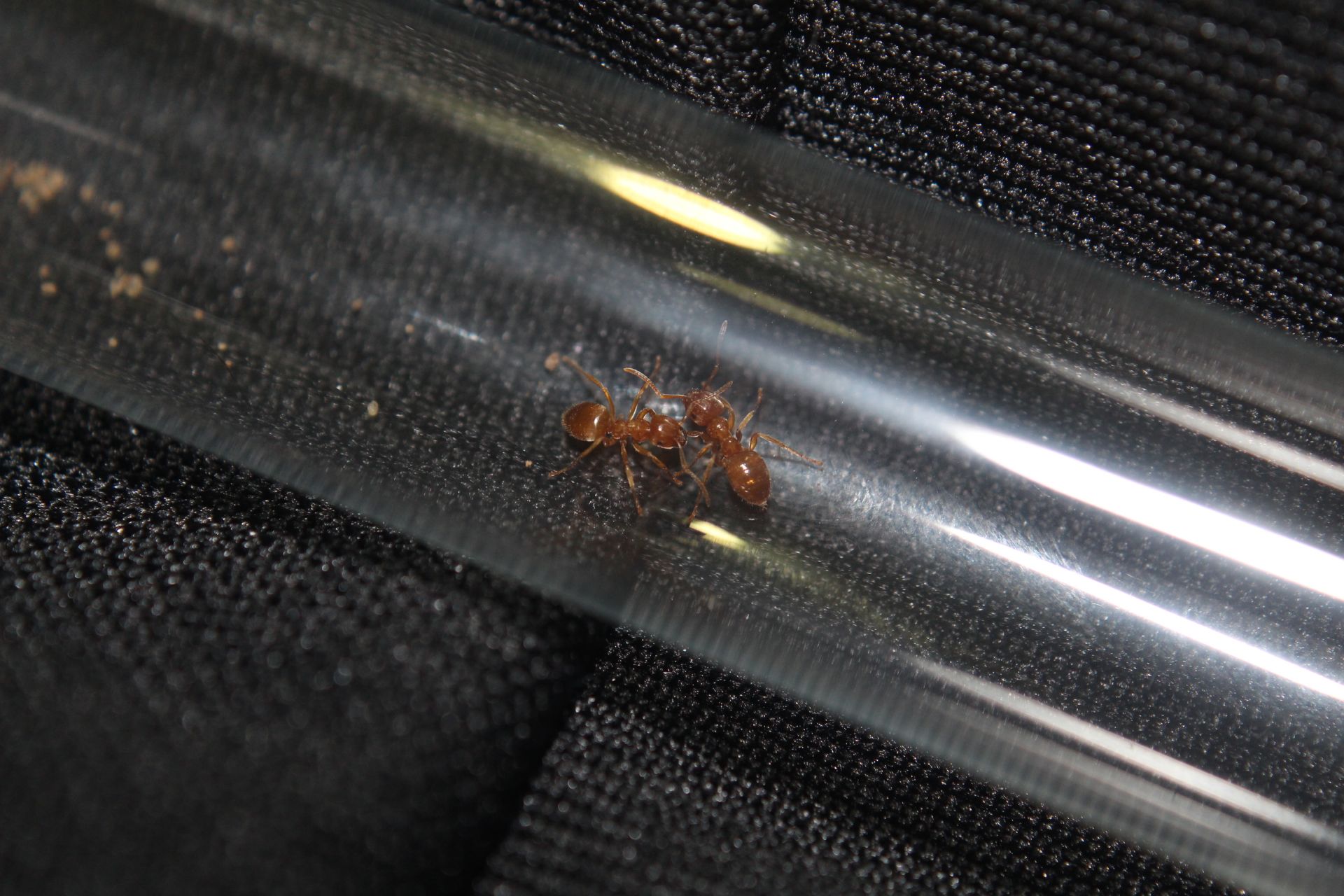
Some cool L. speculiventris queens
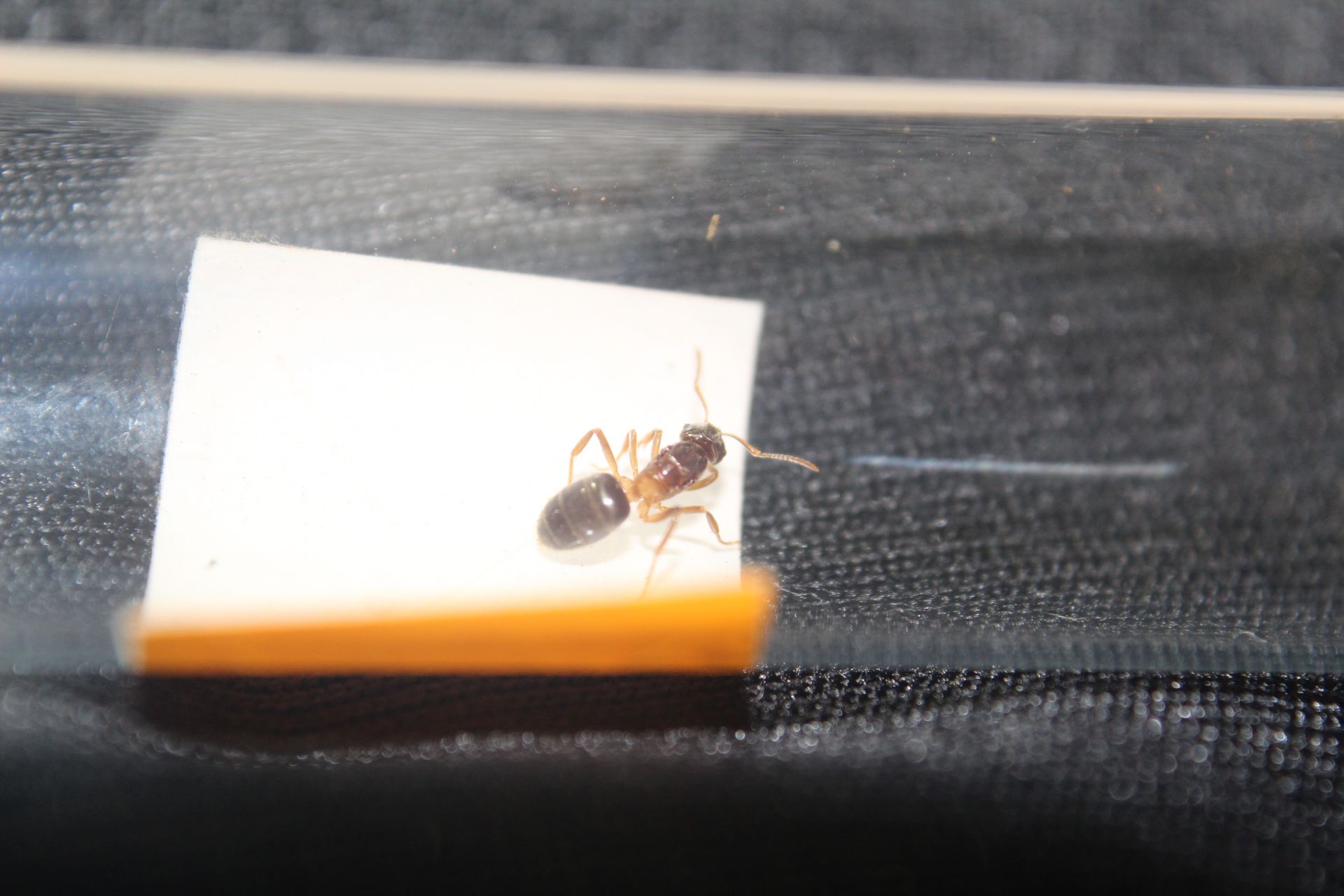
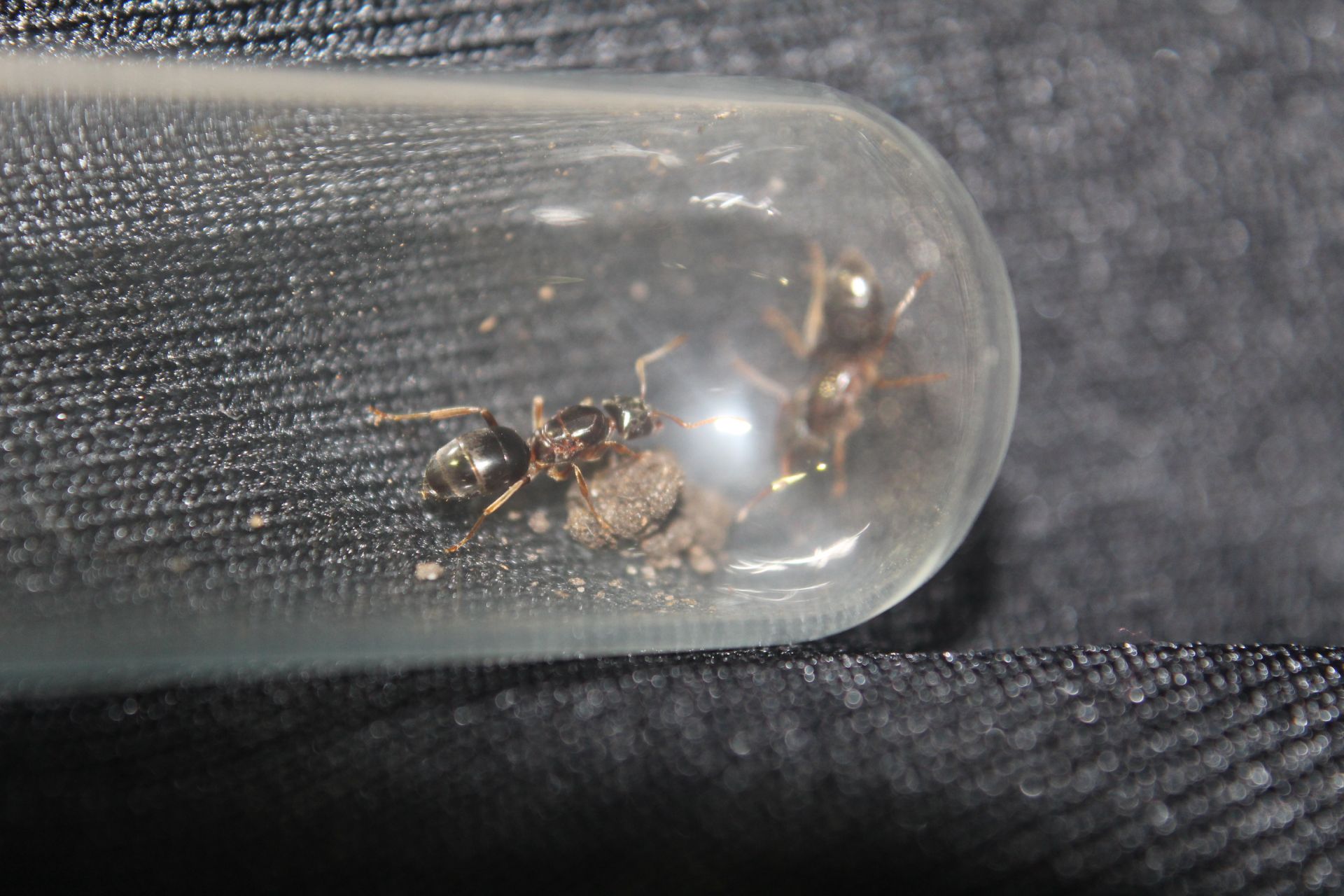
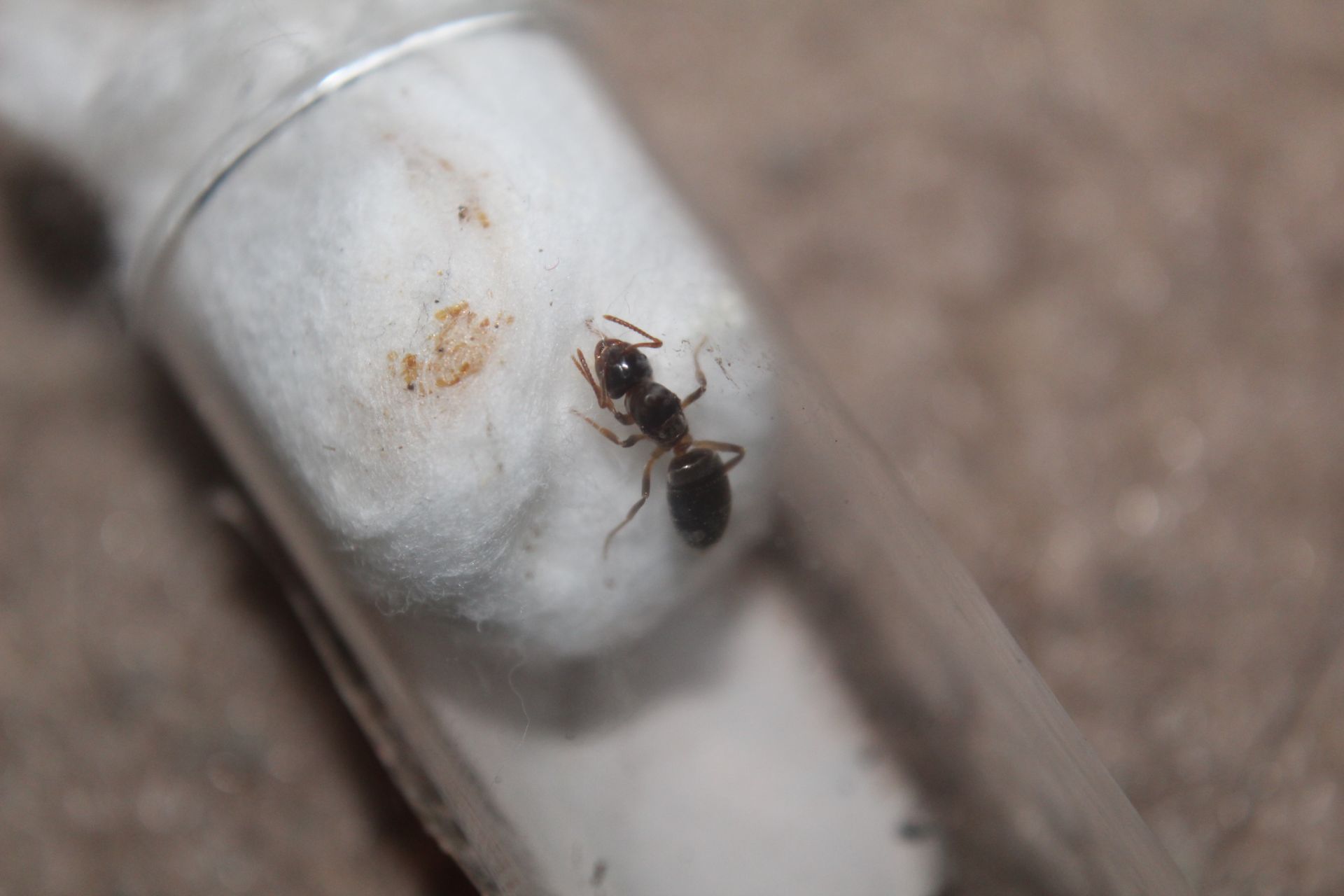
The speculiventris being fed sunburst and egg
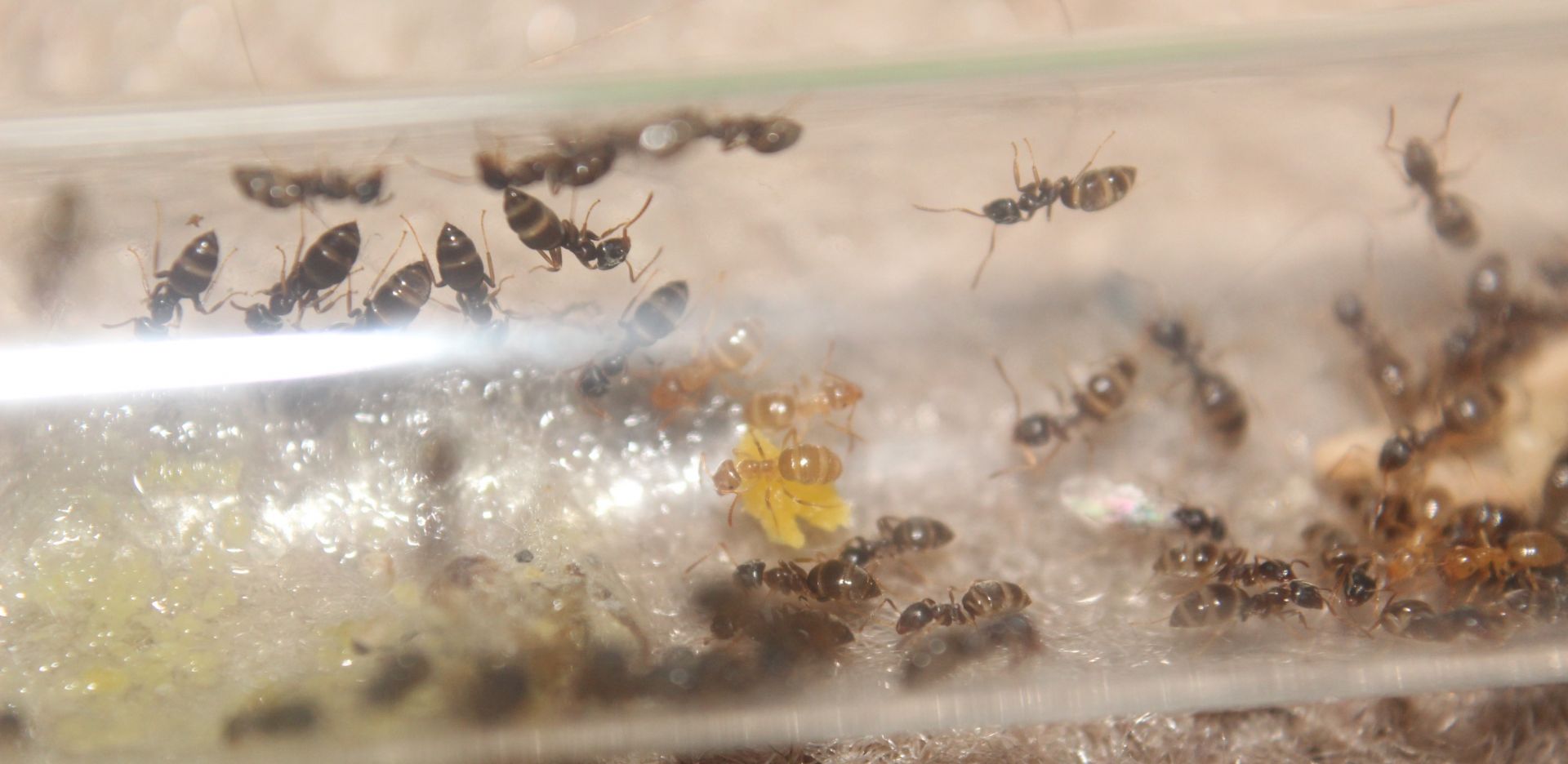
speculiventris killing workers during introduction
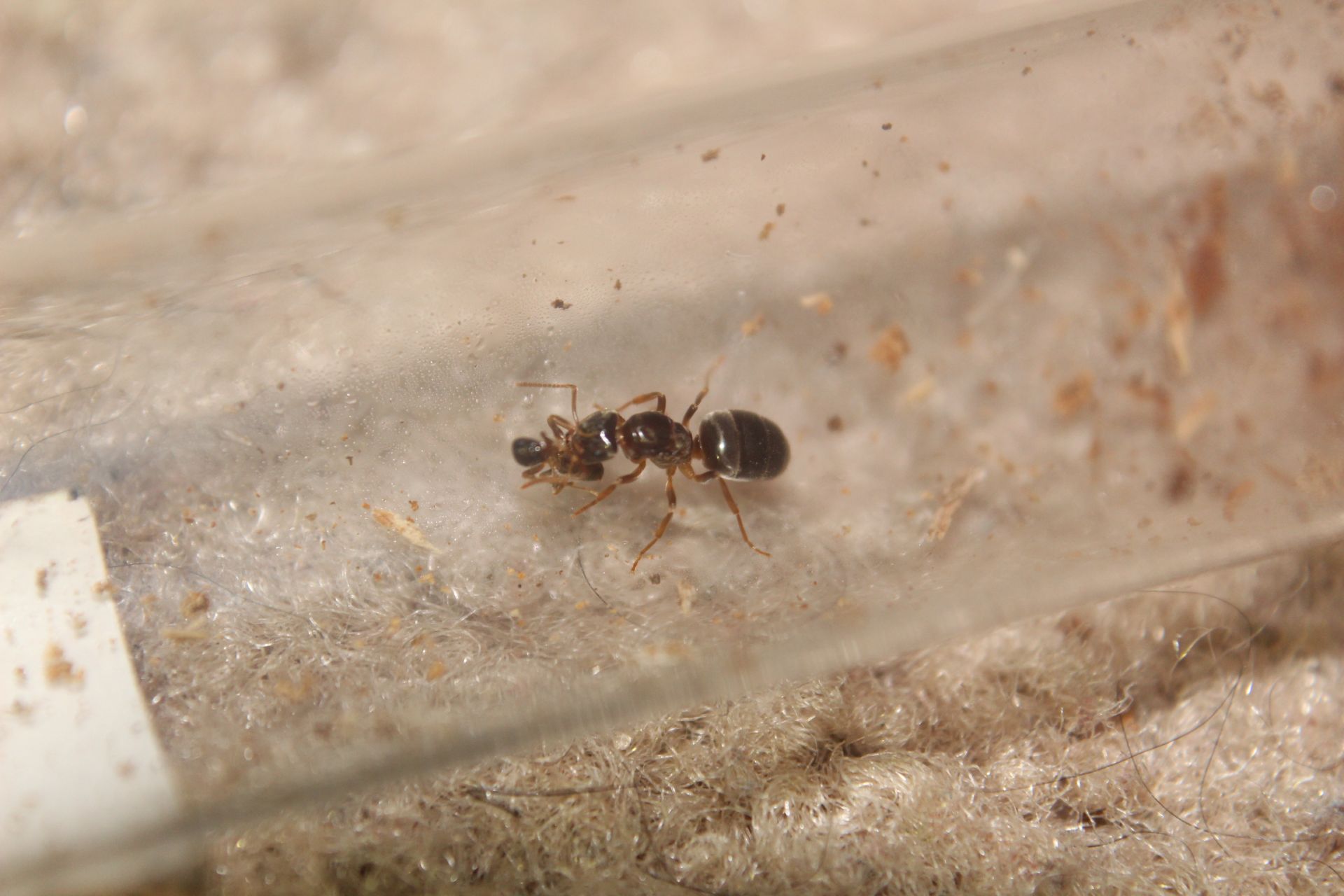
A cool shadow
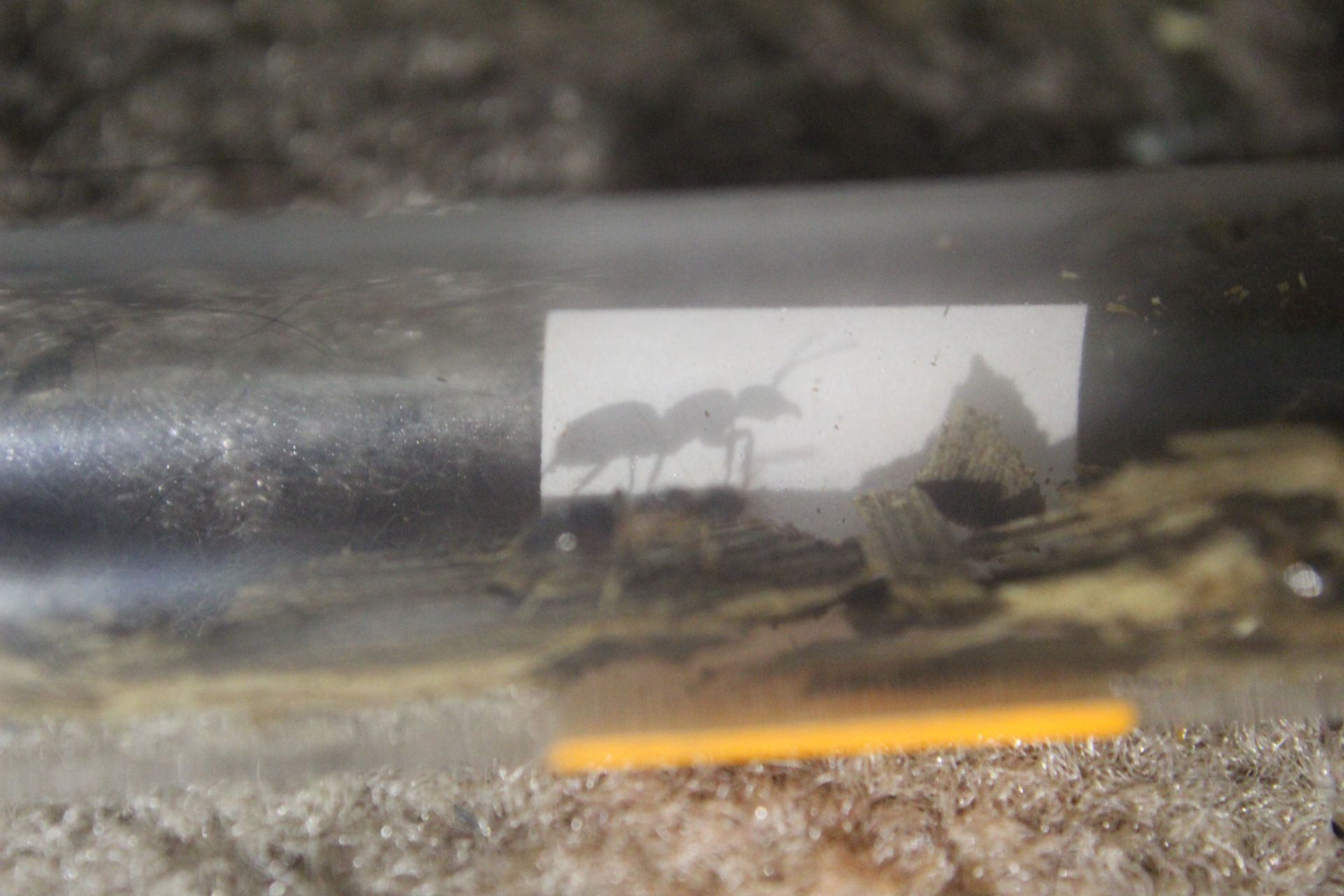
Some cool coloration during introduction
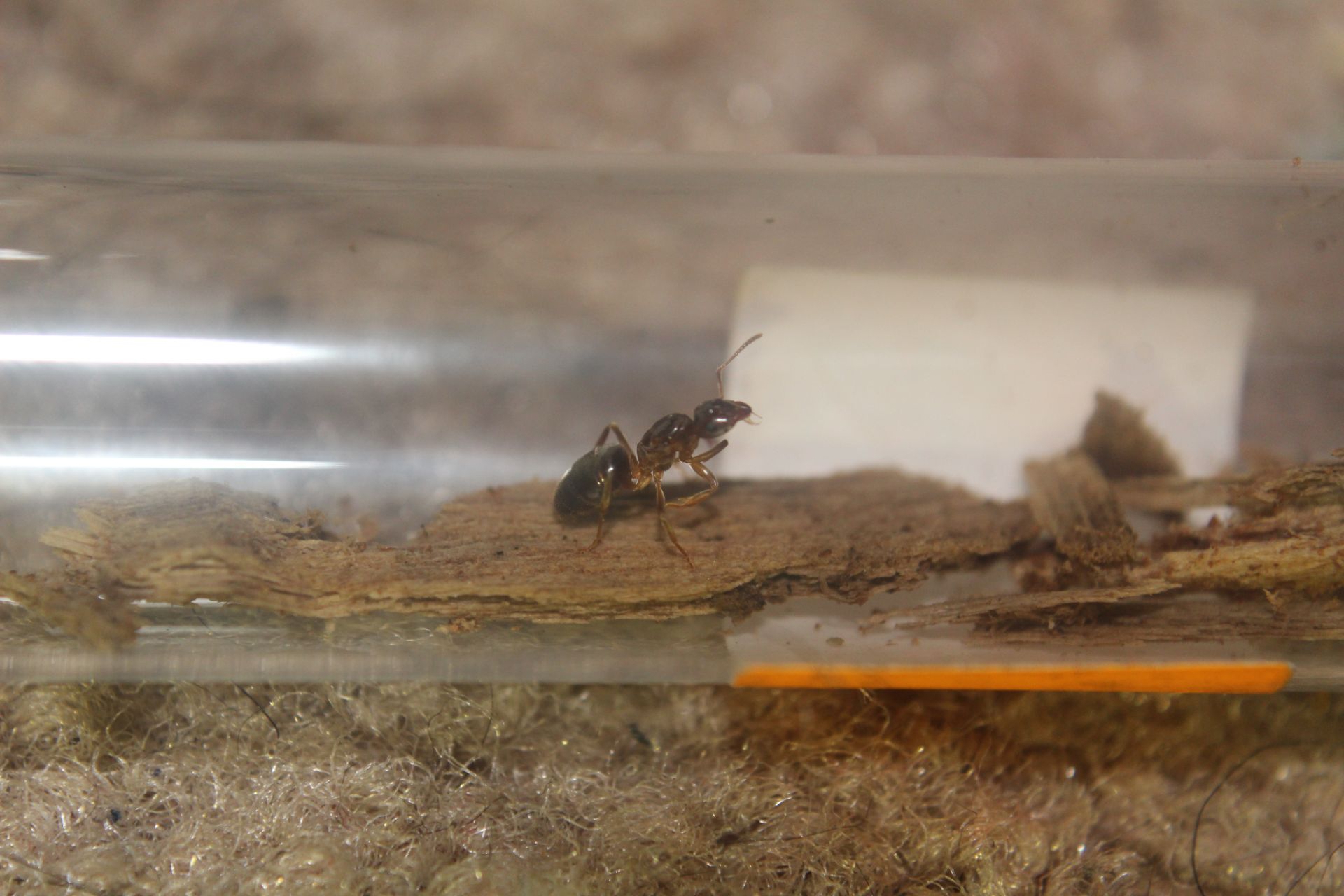
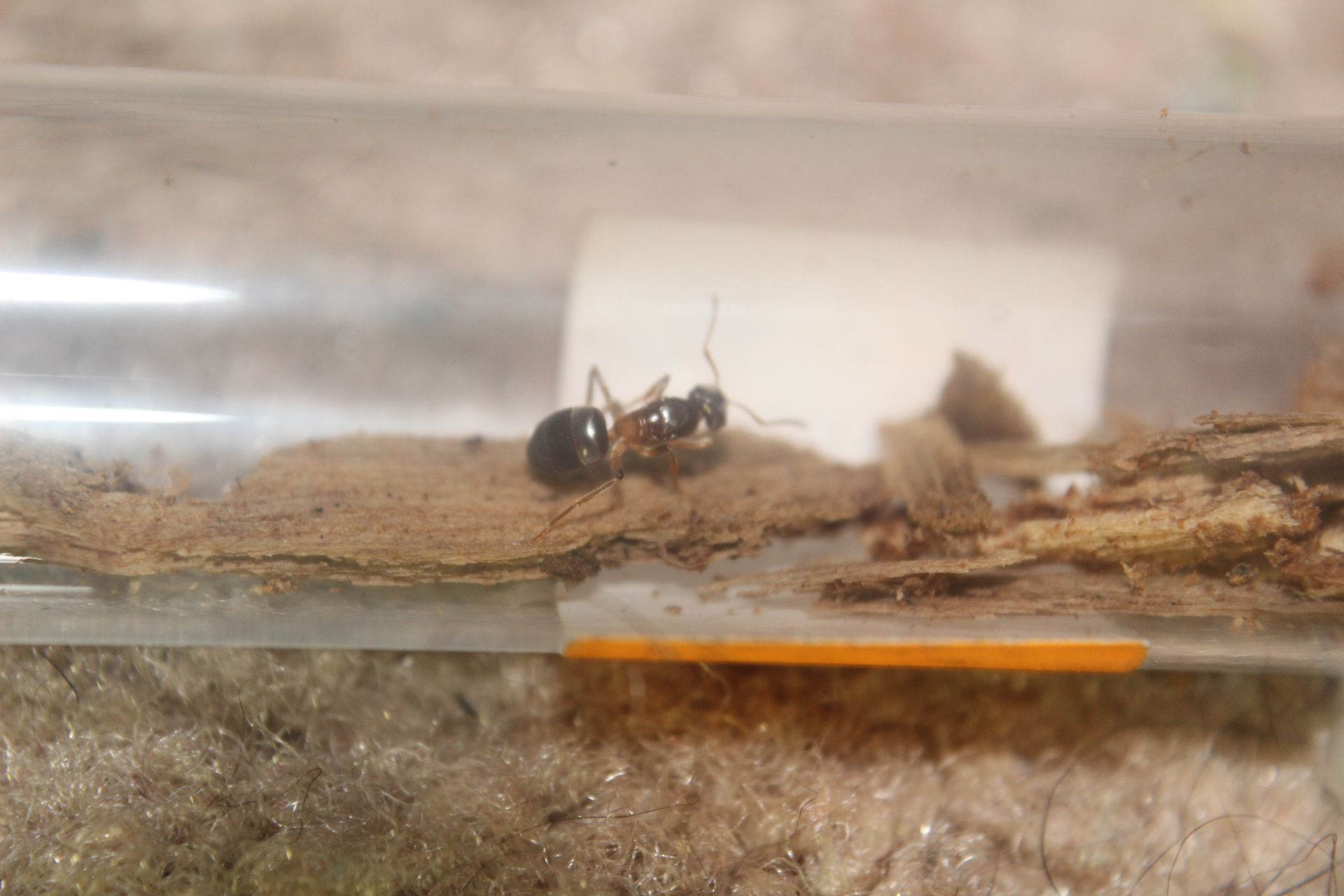
- ANTdrew, Boog and RushmoreAnts like this
Ant Keeping & Ethology Discord - 2000+ Members and growing
Statesideants.com - order live ants legally in the US
#66
 Offline
-
Posted April 19 2020 - 4:15 PM
Offline
-
Posted April 19 2020 - 4:15 PM
Do you know which lasius parasites are polygynous?
Sent from my Pixel XL using Tapatalk
No. I find them nesting together during hibernation and they get along, even when introduced to host workers but I cannot be sure if they will last together.
Ant Keeping & Ethology Discord - 2000+ Members and growing
Statesideants.com - order live ants legally in the US
#67
 Offline
-
Posted April 24 2020 - 10:29 PM
Offline
-
Posted April 24 2020 - 10:29 PM
4/25/20
I moved the big speculiventris colony to a Tarheelants Inception Chamber today. My camera lens is currently gone so I had to take a weird video.
Here's the video:
Edited by AnthonyP163, April 24 2020 - 10:31 PM.
- CheetoLord02 and RushmoreAnts like this
Ant Keeping & Ethology Discord - 2000+ Members and growing
Statesideants.com - order live ants legally in the US
#68
 Offline
-
Posted April 25 2020 - 5:22 AM
Offline
-
Posted April 25 2020 - 5:22 AM
Amazing colony! I have yet to find a parasitic queen this year. I’ve never been able to find them in the spring, only in fall when they fly.
"God made..... all the creatures that move along the ground according to their kinds (including ants). And God saw that it was good. Genesis 1:25 NIV version
Keeping:
Formica cf. pallidefulva, cf. incerta, cf. argentea
Formica cf. aserva, cf. subintegra
Myrmica sp.
Lasius neoniger, brevicornis
#69
 Offline
-
Posted April 28 2020 - 4:49 PM
Offline
-
Posted April 28 2020 - 4:49 PM
4/28/20
The past week or so has been tough. I have been doing introductions for a while. After seeing Lasius claviger apparently cooperate (at least temporarily), I was determined to see if it would work with the speculiventris/aphidicola. I got two queens to finally be accepted by the same colonies and cautiously combined the two. The queens stayed in separate tubes, and the workers tolerated and cared for both, wandering between tubes. Eventually both queens were in the same tube, and for a few minutes it looked like they were tolerant of one another but then they started tumbling around fighting one another. Sucks that it doesn't work with them, but I can't say that I'm surprised.
I separated the colonies, since there was a lot of workers. Hopefully they continue to be accepted normally. The big speculiventris colony is doing very well in their inception chamber, they stacked dirt in the entrance and have a ton of brood. I have noticed they almost completely ignore protein but the workers gasters become skinny within a few hours of me feeding them, and this leads me to believe they probably prefer to feed the larvae liquid sweets instead of protein. I still see callows eclosing.
In some smaller colonies, the one queen claviger colony has 2 eggs and so does one of the speculiventris. I fed them today and I expect more eggs to be laid within the next few days in more colonies.
It is necessary to discuss the ID of the species on this thread. I've done a lot of research in the past few days/weeks and I cannot confidently ID aphidicola from speculiventris at this time. I would need a dead worker, most likely. The taxonomy of these two species is complicated. For simplicity's sake I will continue calling them what I have been calling them this whole time, which is speculiventris, based on the first queen that I founded this season. I just needed to note that this might be wrong, although they seem so similar that introduction appears to be the same. I am guessing I have both in my collection currently.
I'm hoping that by late summer I will have quite a few of these colonies with biological workers. I do have intentions to catch Lasius interjectus this summer as well.
Because my macro lens is no longer with us, I do not have any pictures this update. Please do enjoy this picture of a giant Lasius parasite colony from Spring Green.
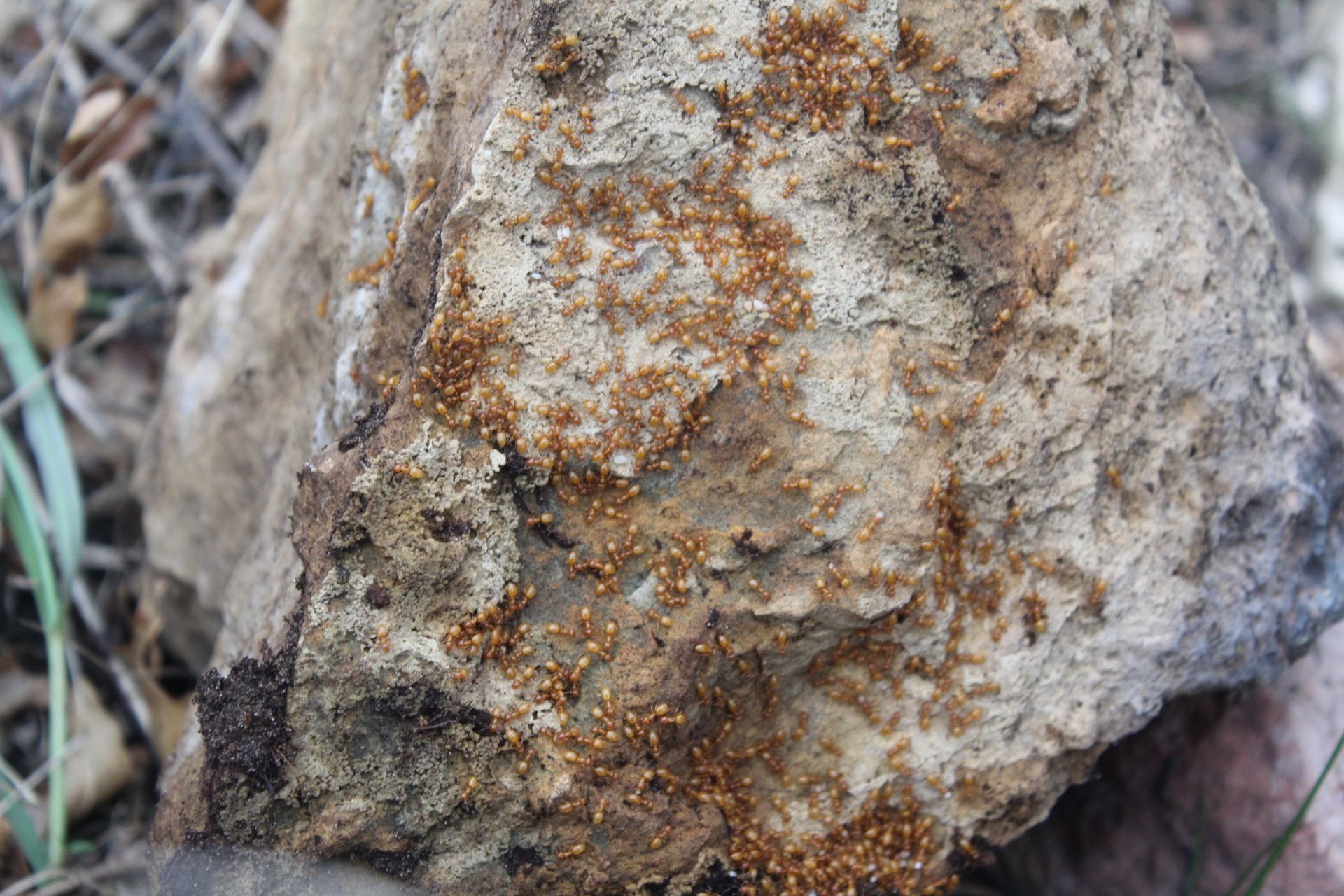
- CheetoLord02 and RushmoreAnts like this
Ant Keeping & Ethology Discord - 2000+ Members and growing
Statesideants.com - order live ants legally in the US
#70
 Offline
-
Posted April 28 2020 - 5:51 PM
Offline
-
Posted April 28 2020 - 5:51 PM
Hey those are some very cool ants, what species are they?
#71
 Offline
-
Posted April 28 2020 - 6:29 PM
Offline
-
Posted April 28 2020 - 6:29 PM
got two queens to finally be accepted by the same colonies and cautiously combined the two. The queens stayed in separate tubes, and the workers tolerated and cared for both, wandering between tubes.
As you know, I recently had my first introduction with these. I was wondering how long it takes for the workers to actually care for the queen like they would their own? They've been cooperating for around a day, but the queen still doesn't join the group of workers completely.
"God made..... all the creatures that move along the ground according to their kinds (including ants). And God saw that it was good. Genesis 1:25 NIV version
Keeping:
Formica cf. pallidefulva, cf. incerta, cf. argentea
Formica cf. aserva, cf. subintegra
Myrmica sp.
Lasius neoniger, brevicornis
#72
 Offline
-
Posted April 28 2020 - 7:04 PM
Offline
-
Posted April 28 2020 - 7:04 PM
got two queens to finally be accepted by the same colonies and cautiously combined the two. The queens stayed in separate tubes, and the workers tolerated and cared for both, wandering between tubes.
As you know, I recently had my first introduction with these. I was wondering how long it takes for the workers to actually care for the queen like they would their own? They've been cooperating for around a day, but the queen still doesn't join the group of workers completely.
Typically, it takes a while for them to get comfortable with her. In about two of my colonies the queen does not stand with the workers by choice, but one of them is the queen that laid eggs. I never see mine 'grooming' the queen, and rarely see trophallaxis. The queens are mostly independent aside from the fact that they need to be fed and their brood needs to be cared for. Obviously, as the colony grows the workers get more and more comfortable with the queen. I would say there's 3 major stages of host introduction, they are Aggressive, Tolerant, and Accepted. The 'tolerant' stage can last from just a little while to a few weeks from what I observe. Do not that this is just from what I observe in a small amount of species. From what you've said, it sounds like your queen is in the tolerant stage. Usually by the time the queen lays eggs, they are fully accepted. I suggest giving them a small amount of protein for the queen to get egg production started.
- RushmoreAnts likes this
Ant Keeping & Ethology Discord - 2000+ Members and growing
Statesideants.com - order live ants legally in the US
#73
 Offline
-
Posted April 29 2020 - 6:34 AM
Offline
-
Posted April 29 2020 - 6:34 AM
Thanks. Also, in what time frame should I expect eggs? I've heard 2-3 weeks, but is this what you've experienced?
"God made..... all the creatures that move along the ground according to their kinds (including ants). And God saw that it was good. Genesis 1:25 NIV version
Keeping:
Formica cf. pallidefulva, cf. incerta, cf. argentea
Formica cf. aserva, cf. subintegra
Myrmica sp.
Lasius neoniger, brevicornis
#74
 Offline
-
Posted April 29 2020 - 8:01 AM
Offline
-
Posted April 29 2020 - 8:01 AM
Thanks. Also, in what time frame should I expect eggs? I've heard 2-3 weeks, but is this what you've experienced?
In some colonies, it can be as little as one week, like in CheetoLords colony. 2-3 weeks seems accurate though, as long as the colony is fed and then left alone for a few days at a time. The queens don't seem to get skittish, and will still lay when you check on them but I know that can't be true in every case. Protein, sweets, and waiting a few days should guarantee eggs eventually.
- CheetoLord02 and RushmoreAnts like this
Ant Keeping & Ethology Discord - 2000+ Members and growing
Statesideants.com - order live ants legally in the US
#75
 Offline
-
Posted May 1 2020 - 2:21 PM
Offline
-
Posted May 1 2020 - 2:21 PM
5/1/20
The queens separated after fighting have both been successful. One of them has around 30 workers and another has around 20. I am moving the one with 30 workers because there's been a yellow mold outbreak in their tube. The queens of these smaller colonies have begun to lay, and at least three queens have done so thus far, with the most eggs being ~20 so far. The big speculiventris colony is doing well, accepted a cricket and some sunburst today. They have a TON of larvae, but don't seem to want protein. The claviger colonies are doing okay but none have eggs right now, at least not that I can see. I think the issue with some of the smaller colonies is that a lot of workers died in the introduction process. However, one of my queens with ~10 workers has some eggs.
Here's some pictures of the big speculiventris colony. I now have my lens and next update I will get pictures of more colonies. These pictures are bad, as I'm trying to figure out how to shoot pictures in this formicarium and because there's some condensation left. At least the queen moved into a good spot for some pictures.
You can see some of the large larvae in these photos. Most of the larvae was on the water tower and there's condensation so I couldn't get a picture this time.
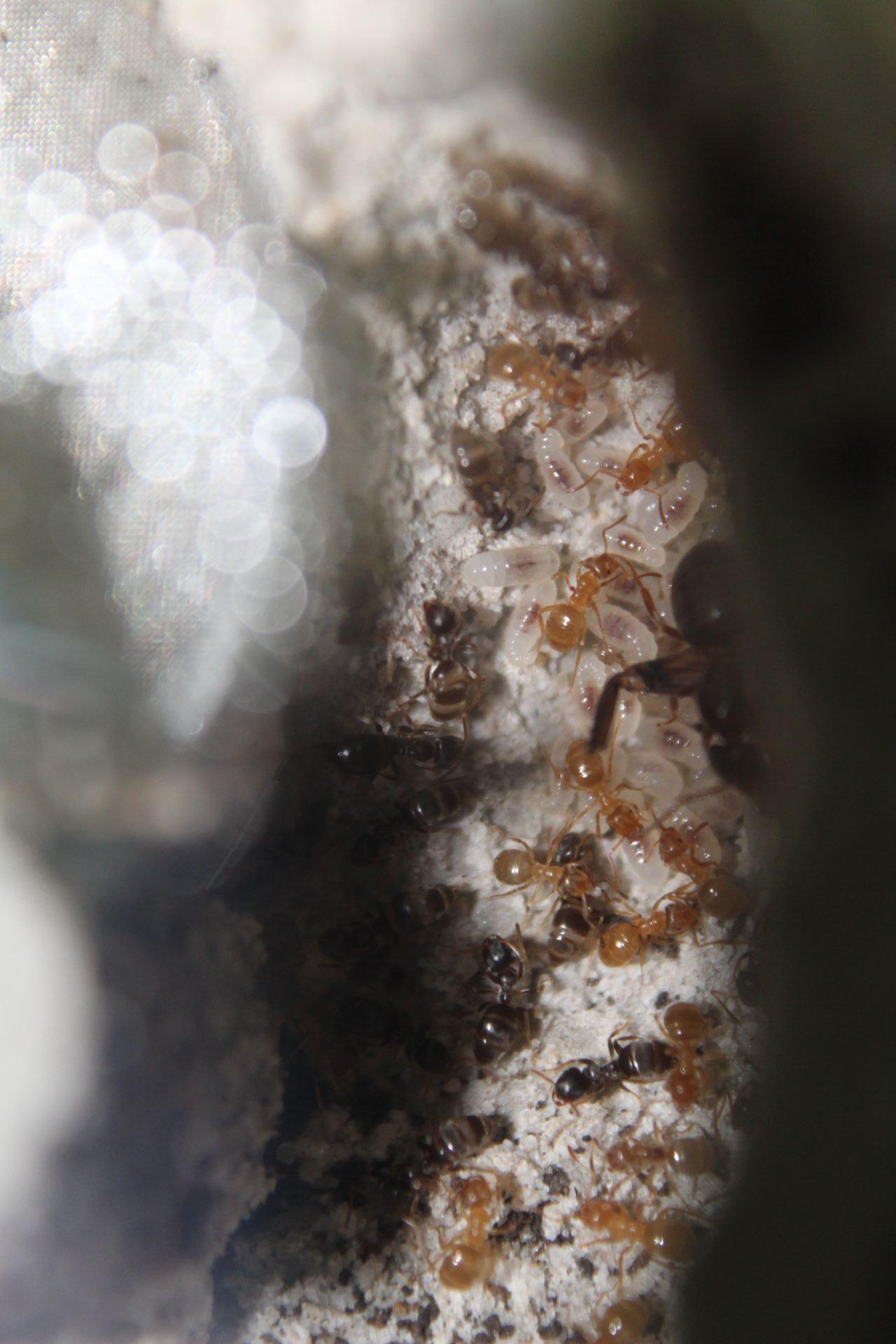
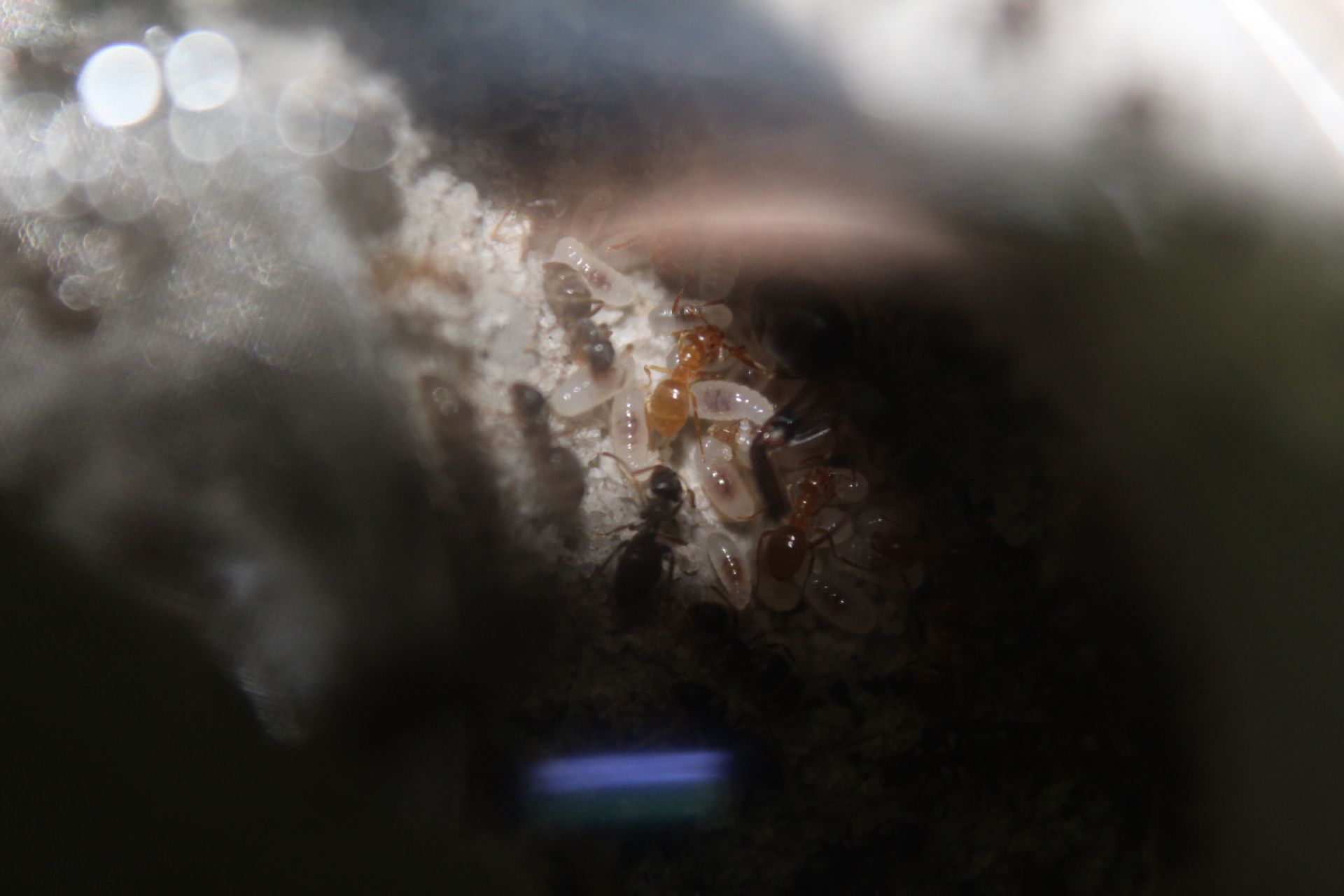
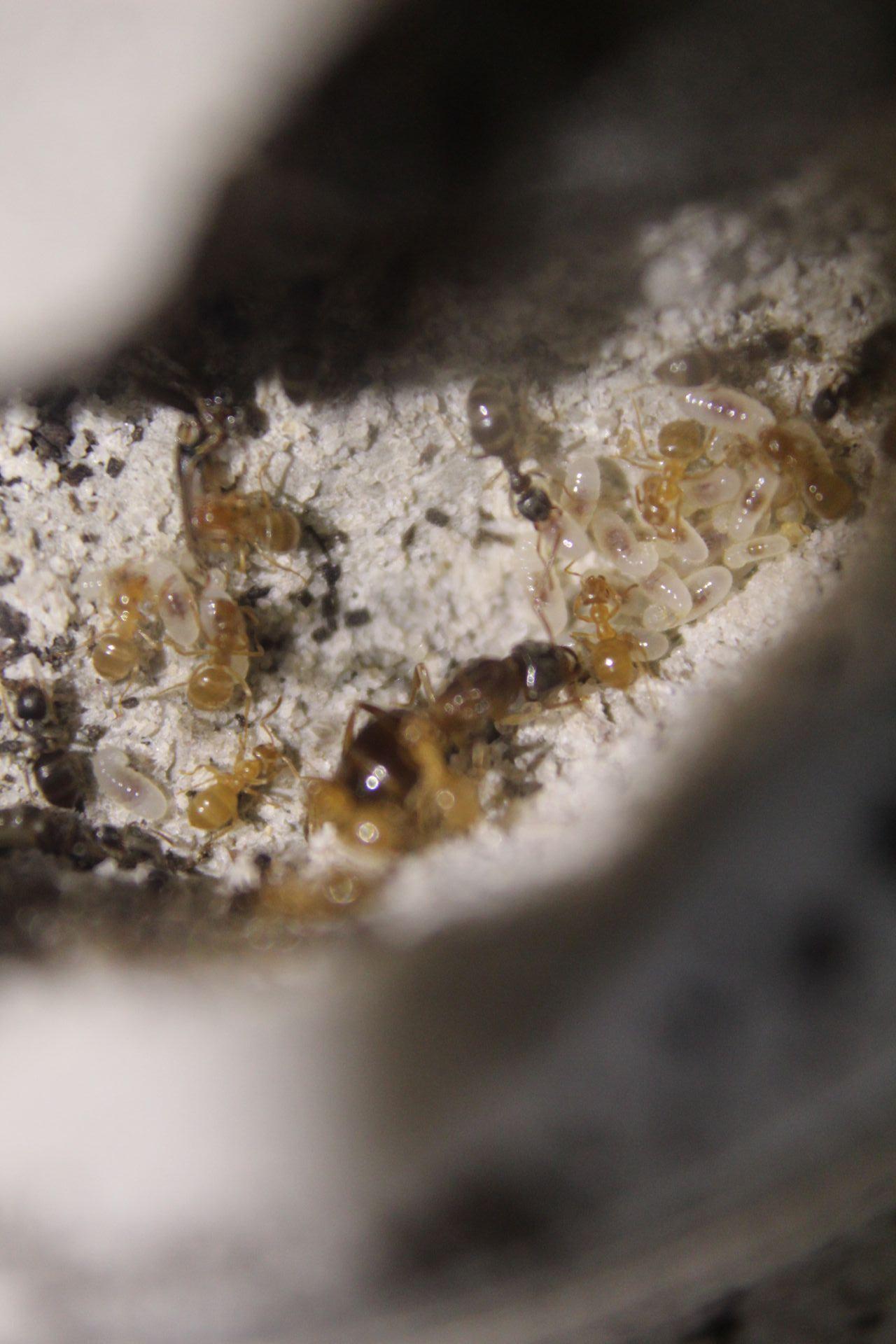
Notice that the queen is physogastric
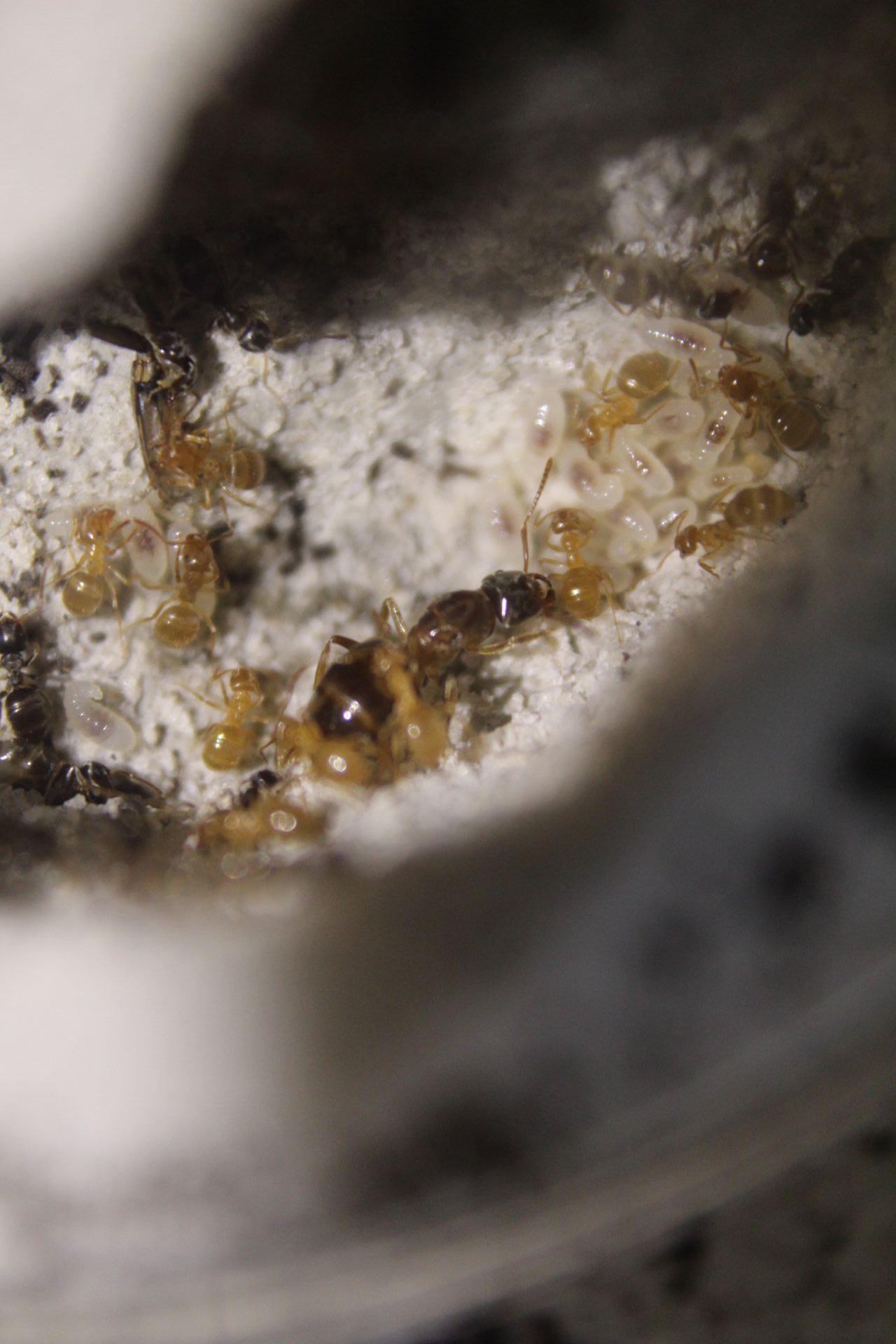
- CheetoLord02 and RushmoreAnts like this
Ant Keeping & Ethology Discord - 2000+ Members and growing
Statesideants.com - order live ants legally in the US
#76
 Offline
-
Posted May 7 2020 - 1:44 PM
Offline
-
Posted May 7 2020 - 1:44 PM
5/7/20
The large speculiventris colony has been doing great. For once, there is not as much small larvae (although still tons). there's a few dozen pupae and late stage larvae, and the queen is very physiogastric. The queen recently laid another huge batch of eggs.
As for the smaller colonies, only one still has visible eggs. Some of the other queens have become physiogastric, so hopefully there's more colonies with eggs soon. The queen with eggs has a nice small batch consisting of a few dozen eggs. The 2 queen Lasius claviger group has only 10 workers, but the queens have both been eating protein and one of them is very physiogastric. Hopefully she will soon lay eggs.
Here are some photos:
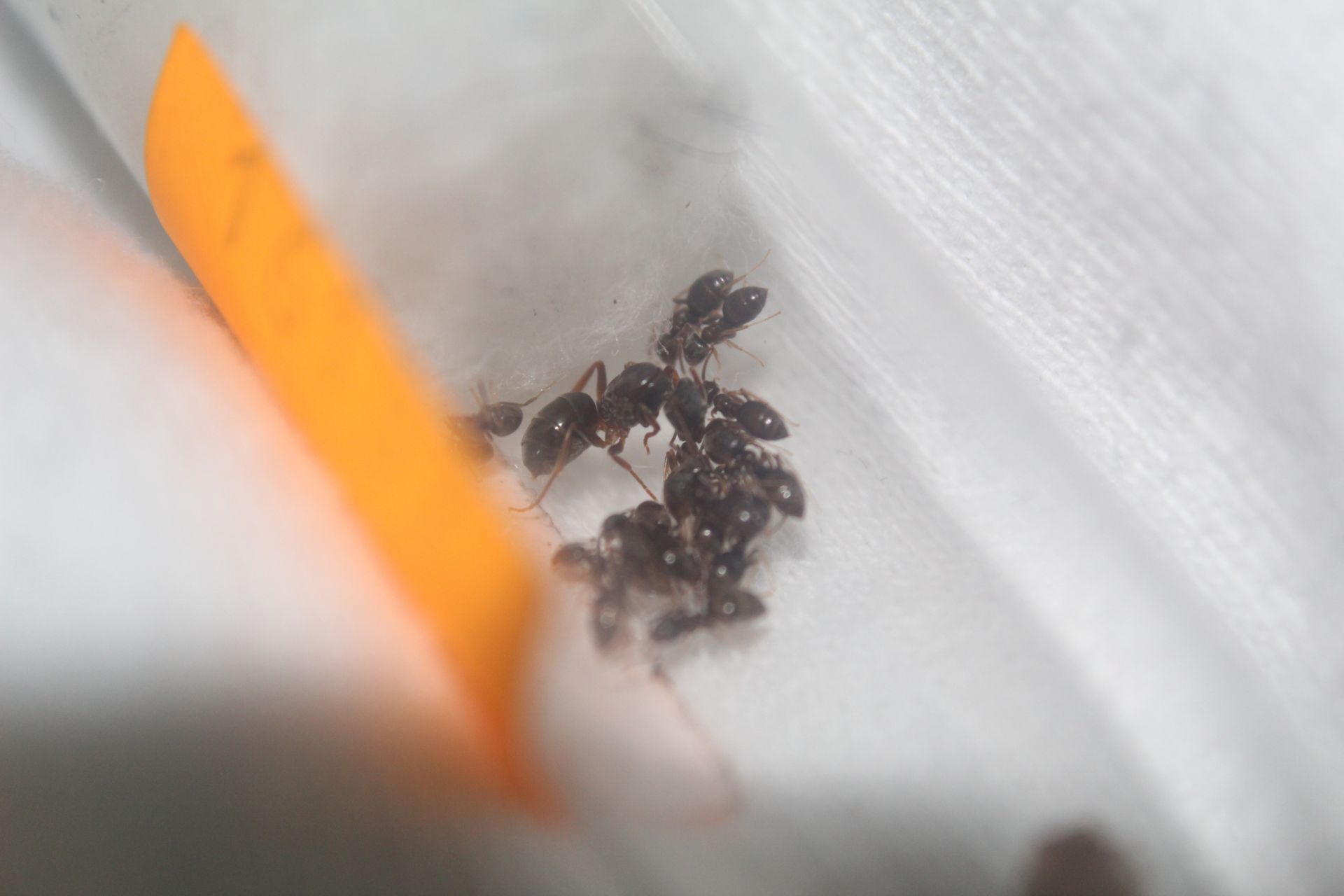
Here's the very physiogastric queen next to the other one
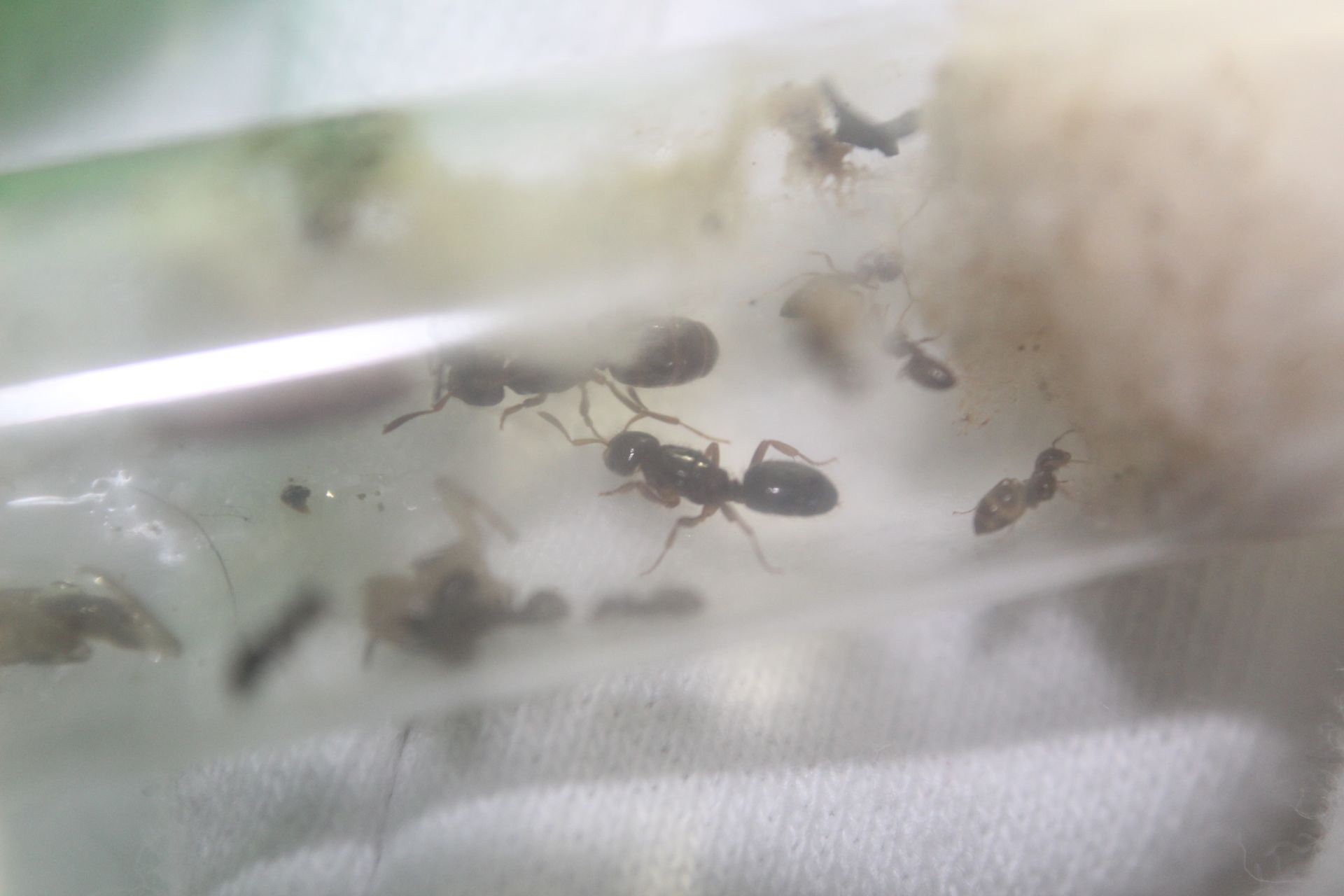
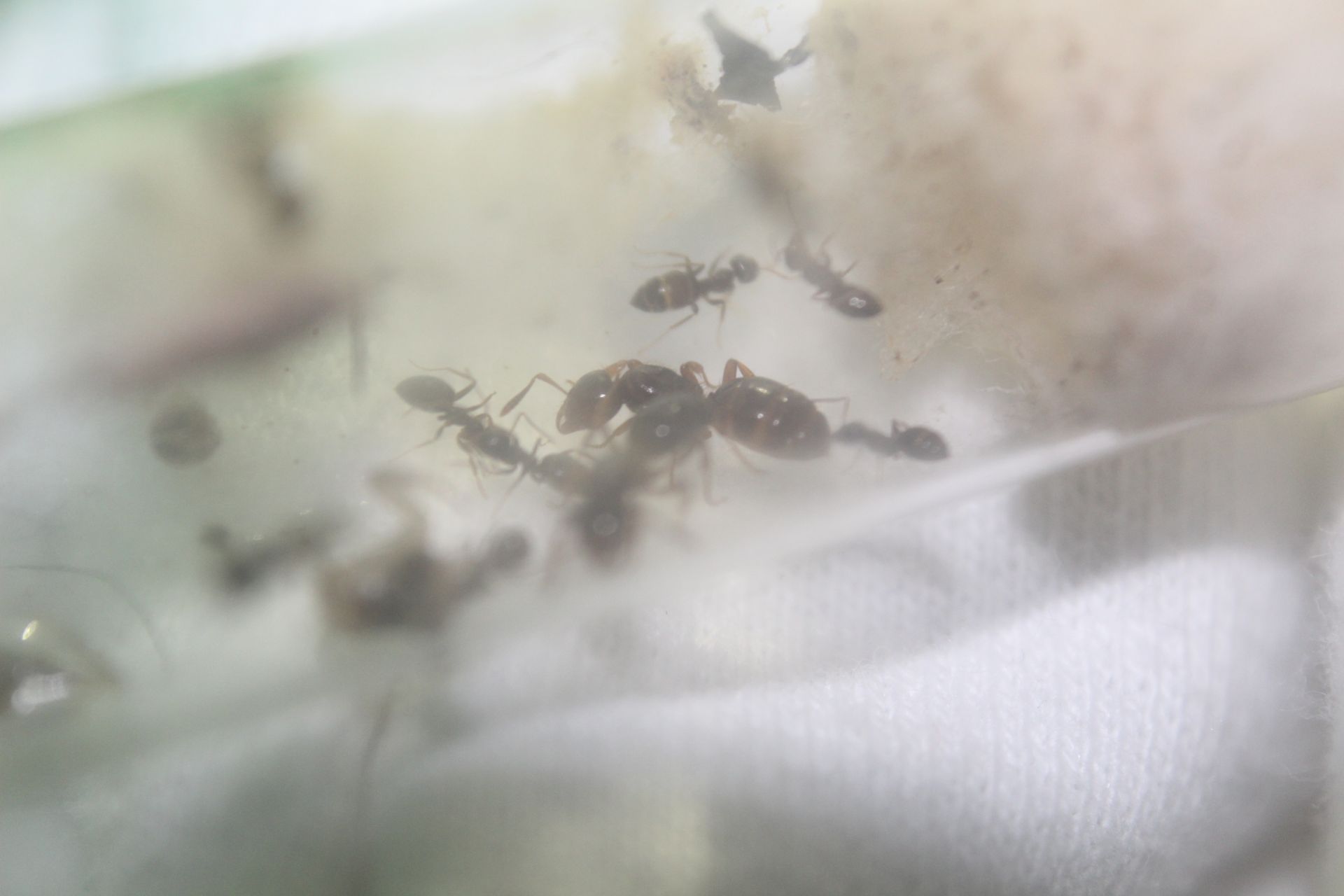
Here's a picture of the huge batch of eggs in the large colony
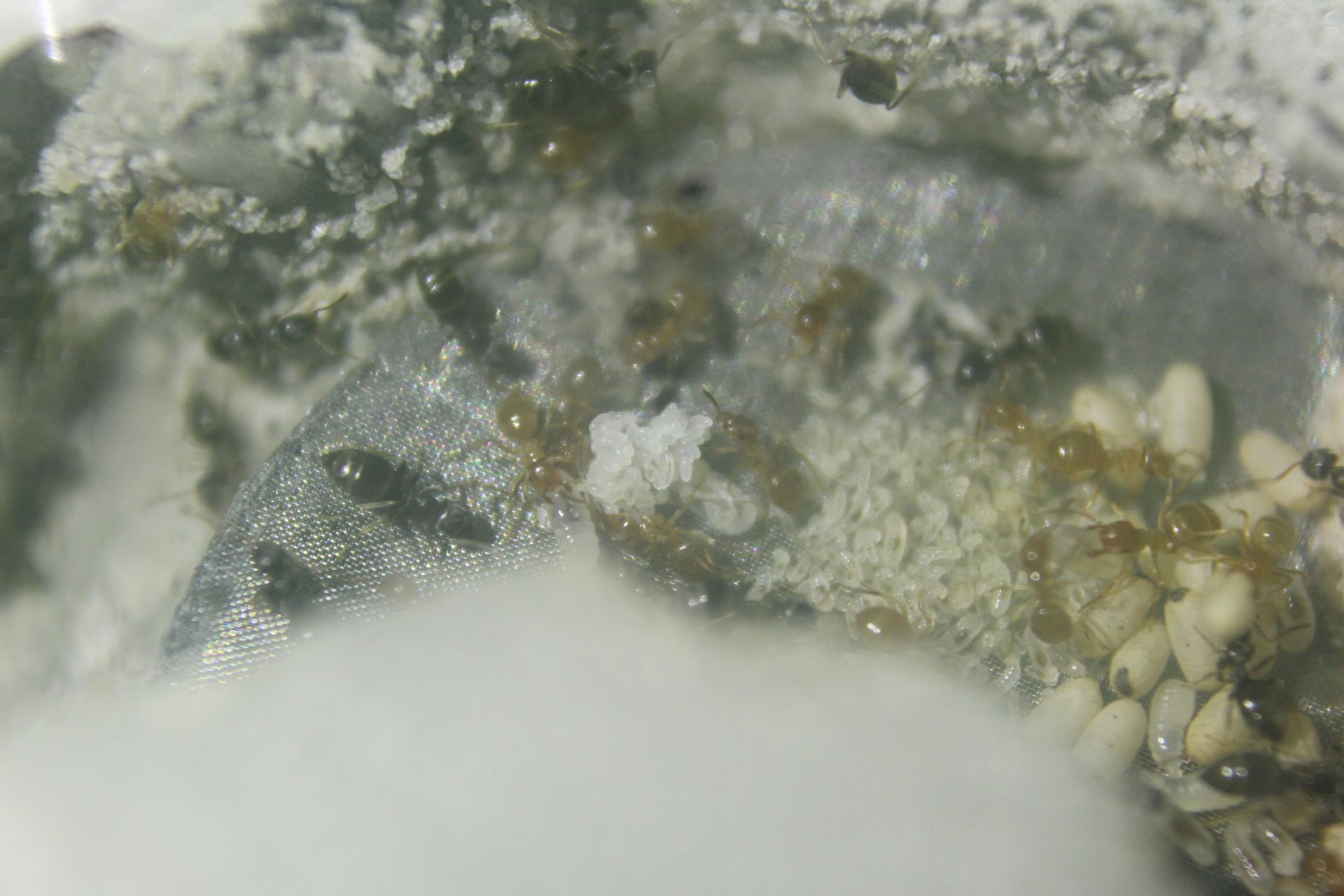
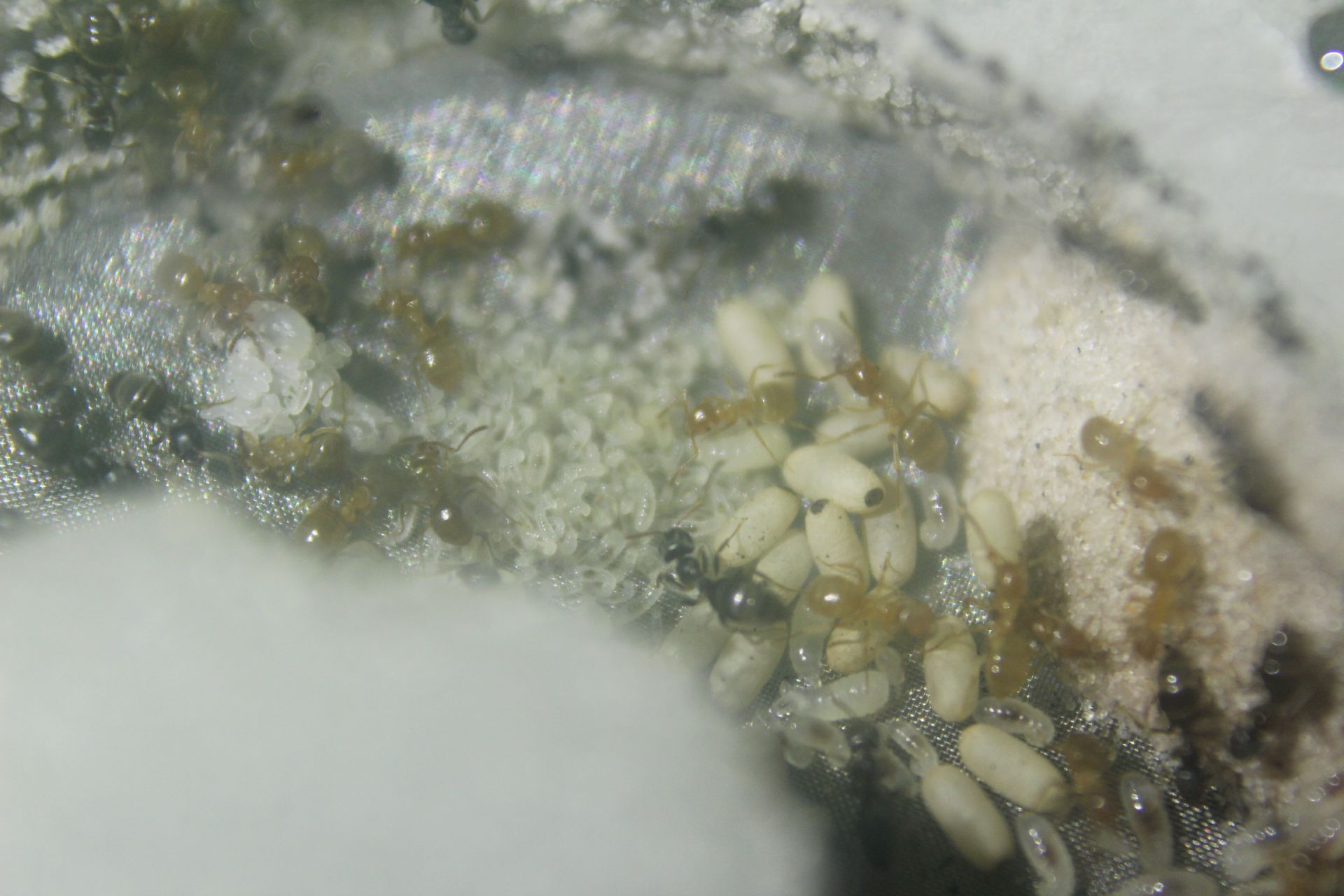
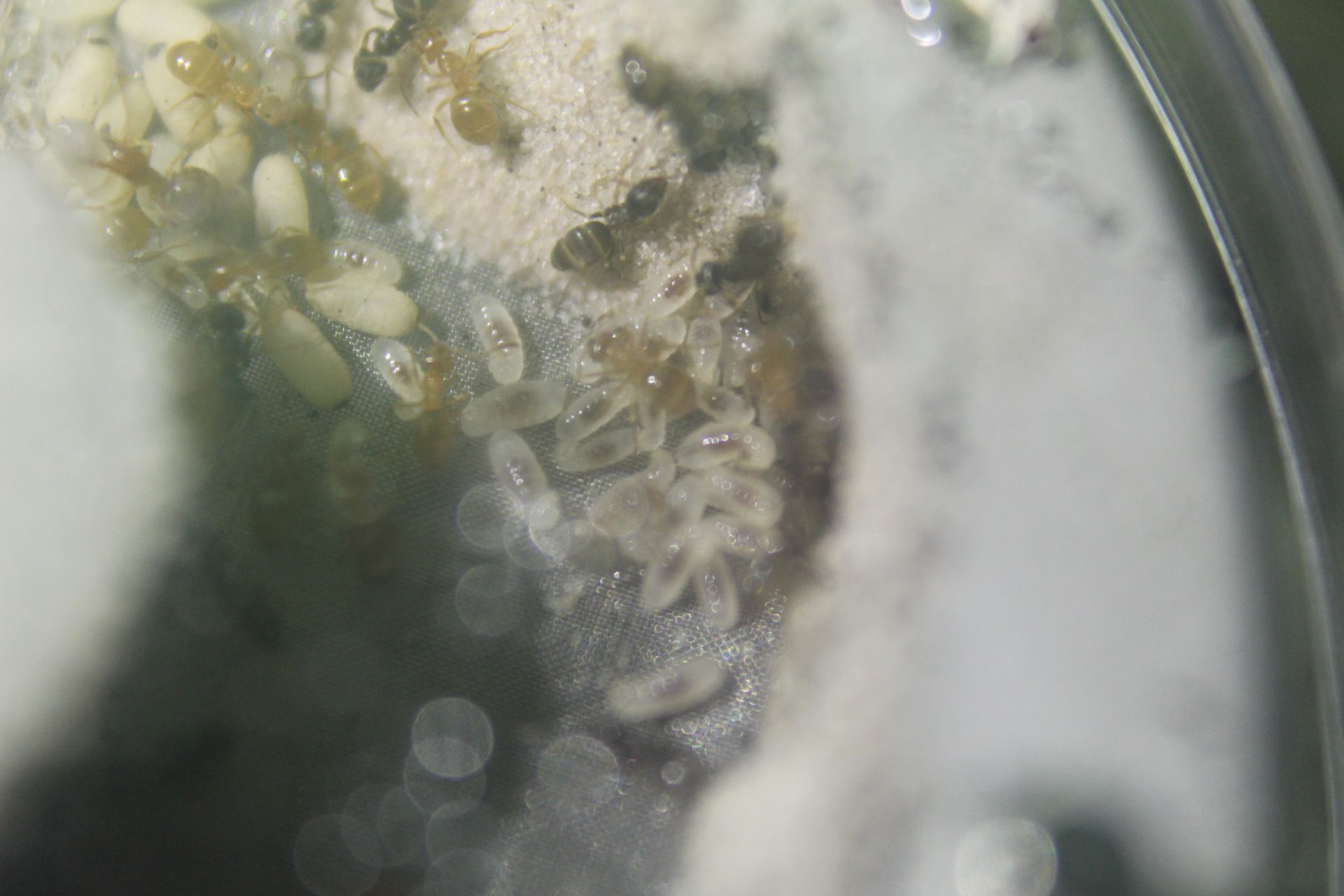
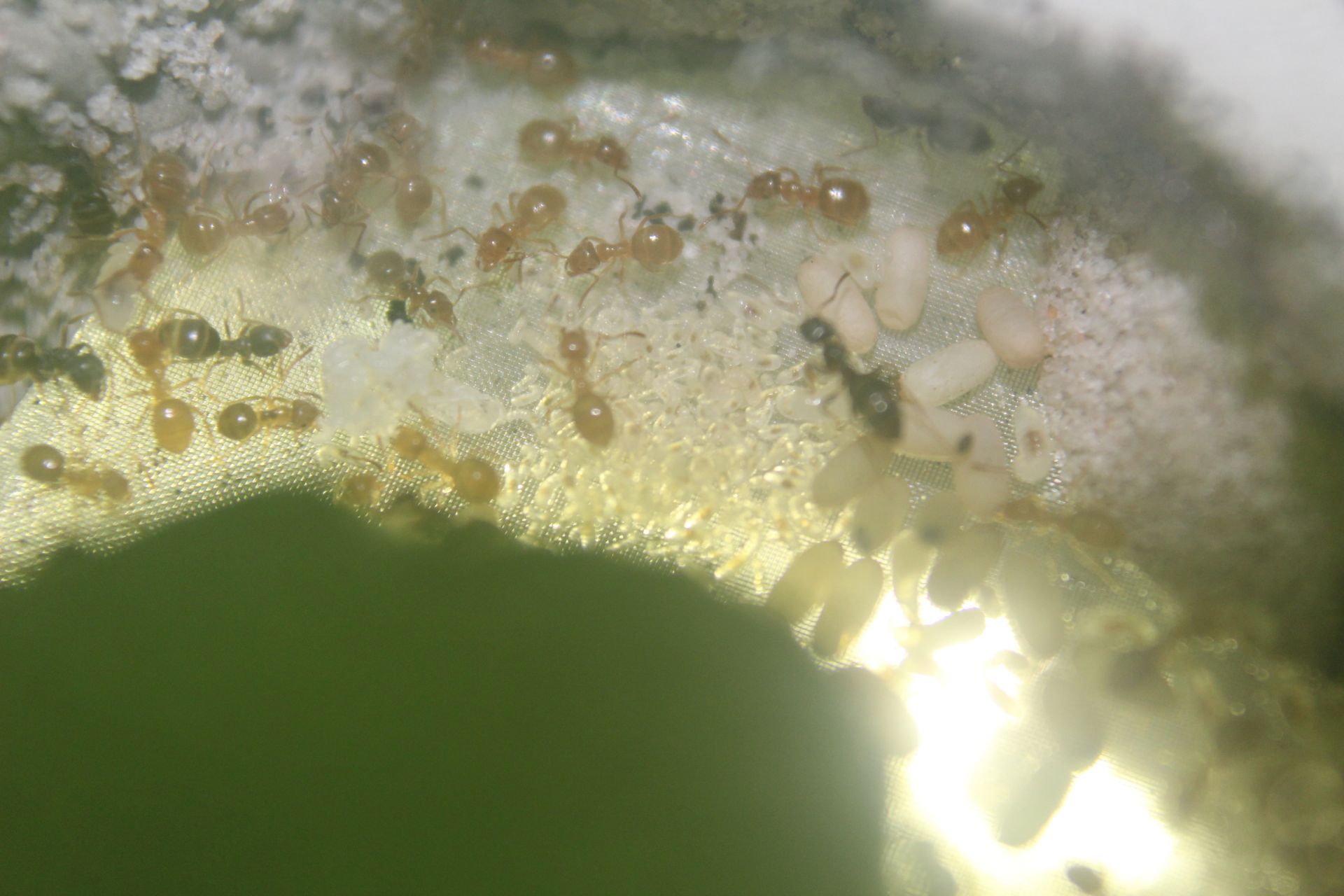
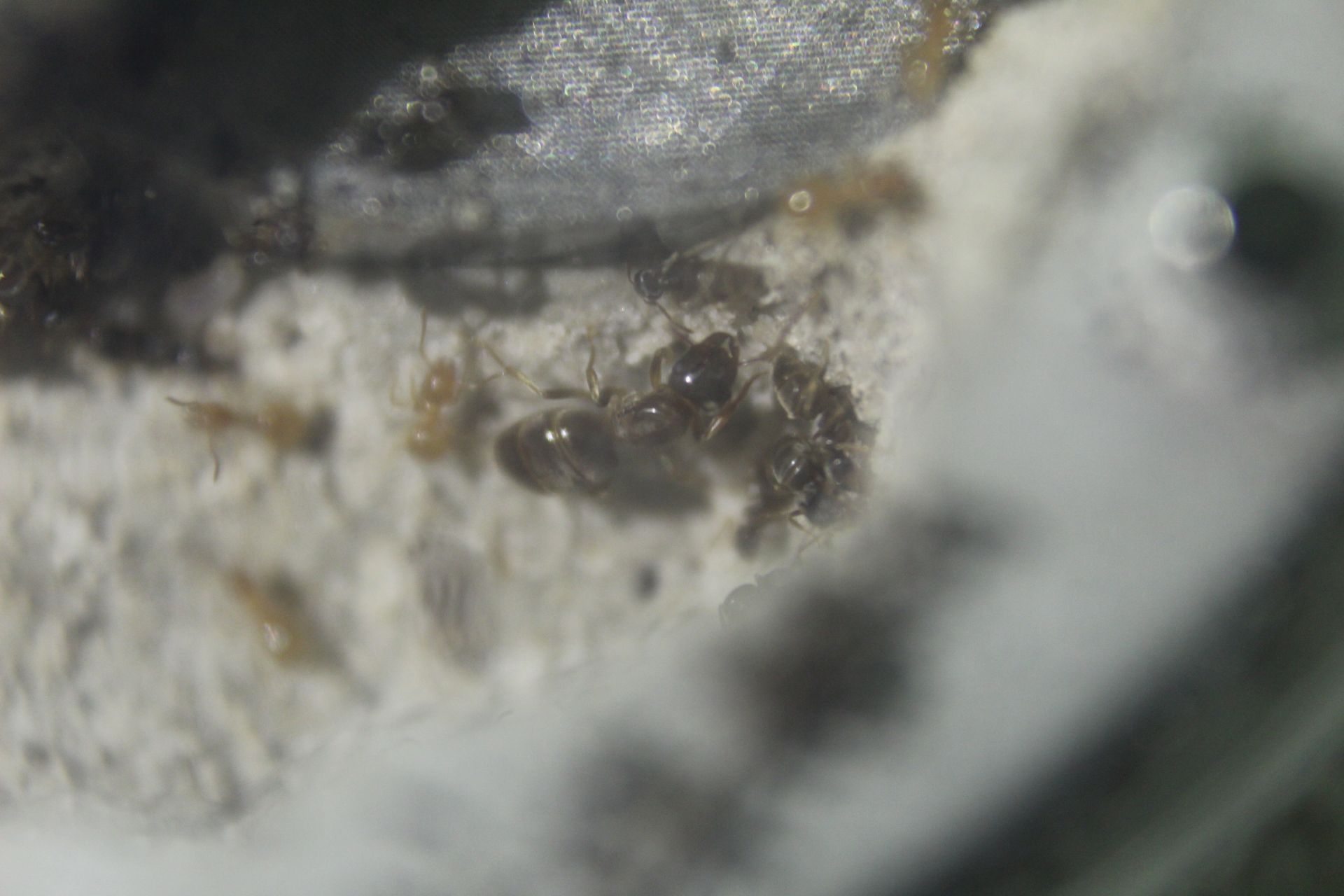
I've been feeding all of the colonies a lot of protein to encourage them to lay eggs
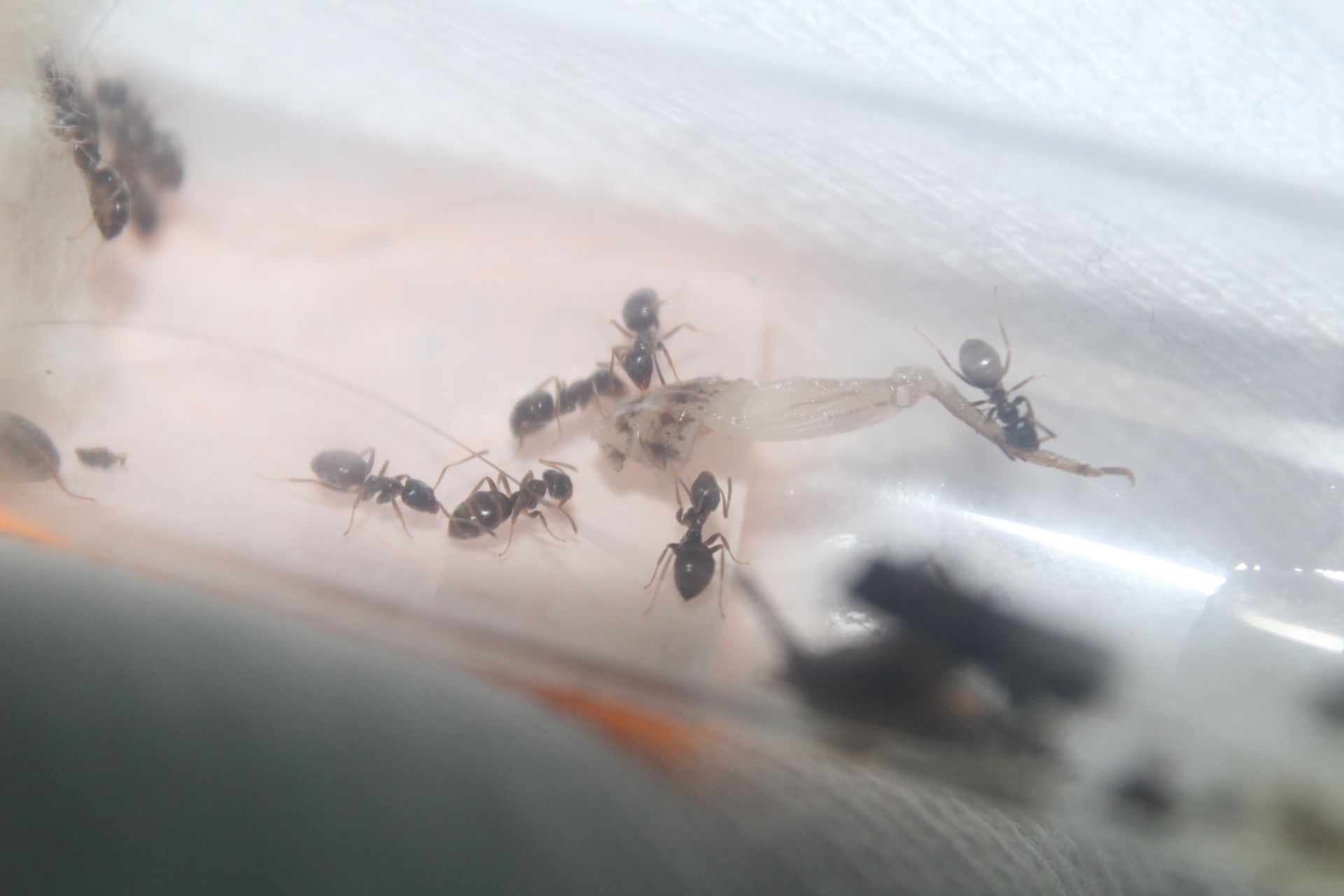
A batch of eggs which is pretty much always kept hidden by the cotton
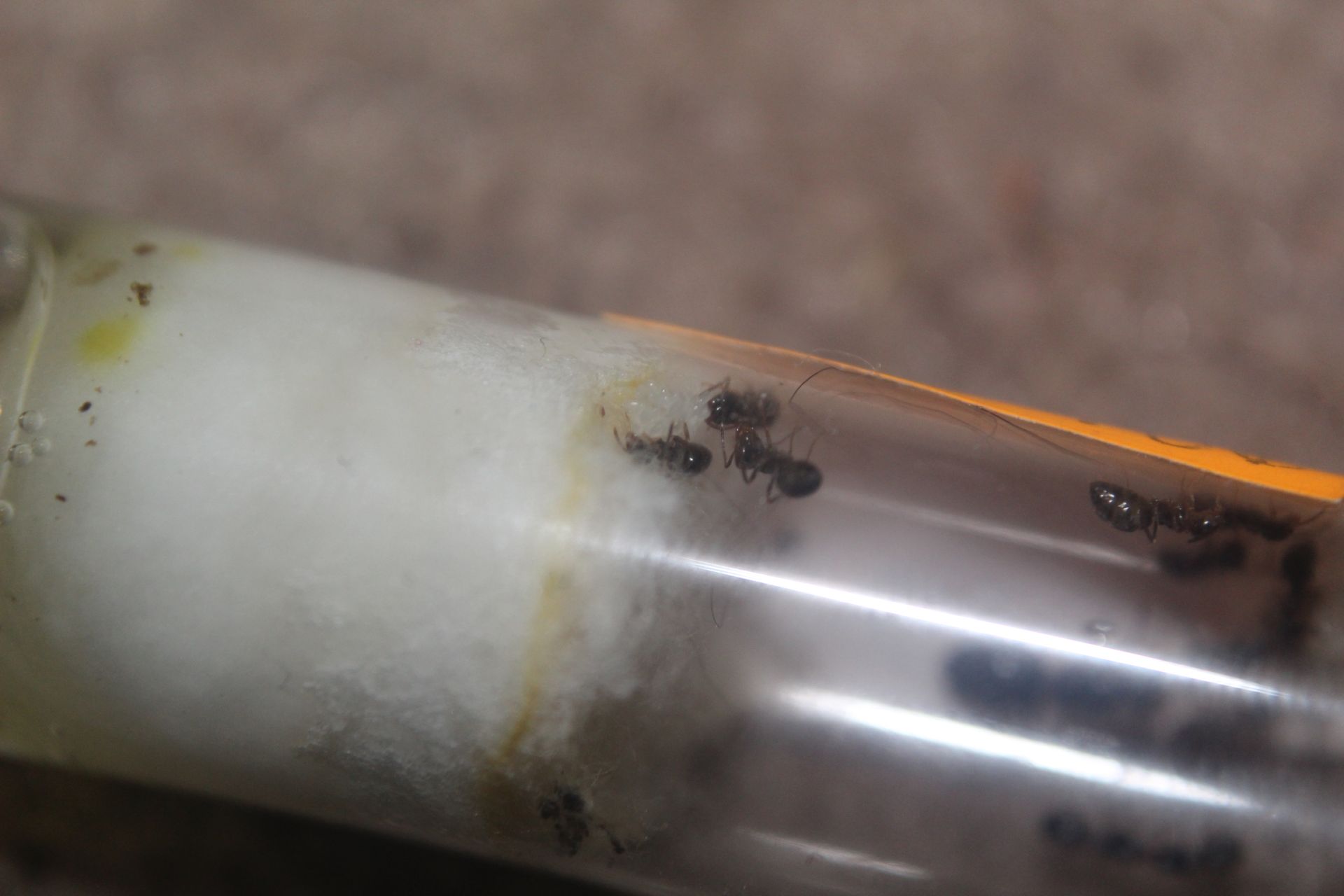
- AntsBC, CheetoLord02 and RushmoreAnts like this
Ant Keeping & Ethology Discord - 2000+ Members and growing
Statesideants.com - order live ants legally in the US
#77
 Offline
-
Posted May 7 2020 - 10:25 PM
Offline
-
Posted May 7 2020 - 10:25 PM
Also I caught the queen laying an egg and put together a few clips from the last few days.
- AntsBC, CheetoLord02 and RushmoreAnts like this
Ant Keeping & Ethology Discord - 2000+ Members and growing
Statesideants.com - order live ants legally in the US
#78
 Offline
-
Posted May 24 2020 - 8:42 AM
Offline
-
Posted May 24 2020 - 8:42 AM
5/24/20
The large Lasius speculiventris colony is now doing very well, although they had a few workers die off. A lot of the pupae has been hatching, so there's more callows and more larvae, too. The queen seems to be getting physiogastric again, and after seeing an image of how their queens can look like termites, well... I really hope this colony makes it to maturity. I think she will lay another batch of eggs soon.
Queens in the smaller colonies have been laying eggs steadily, and I think one of them has larvae.
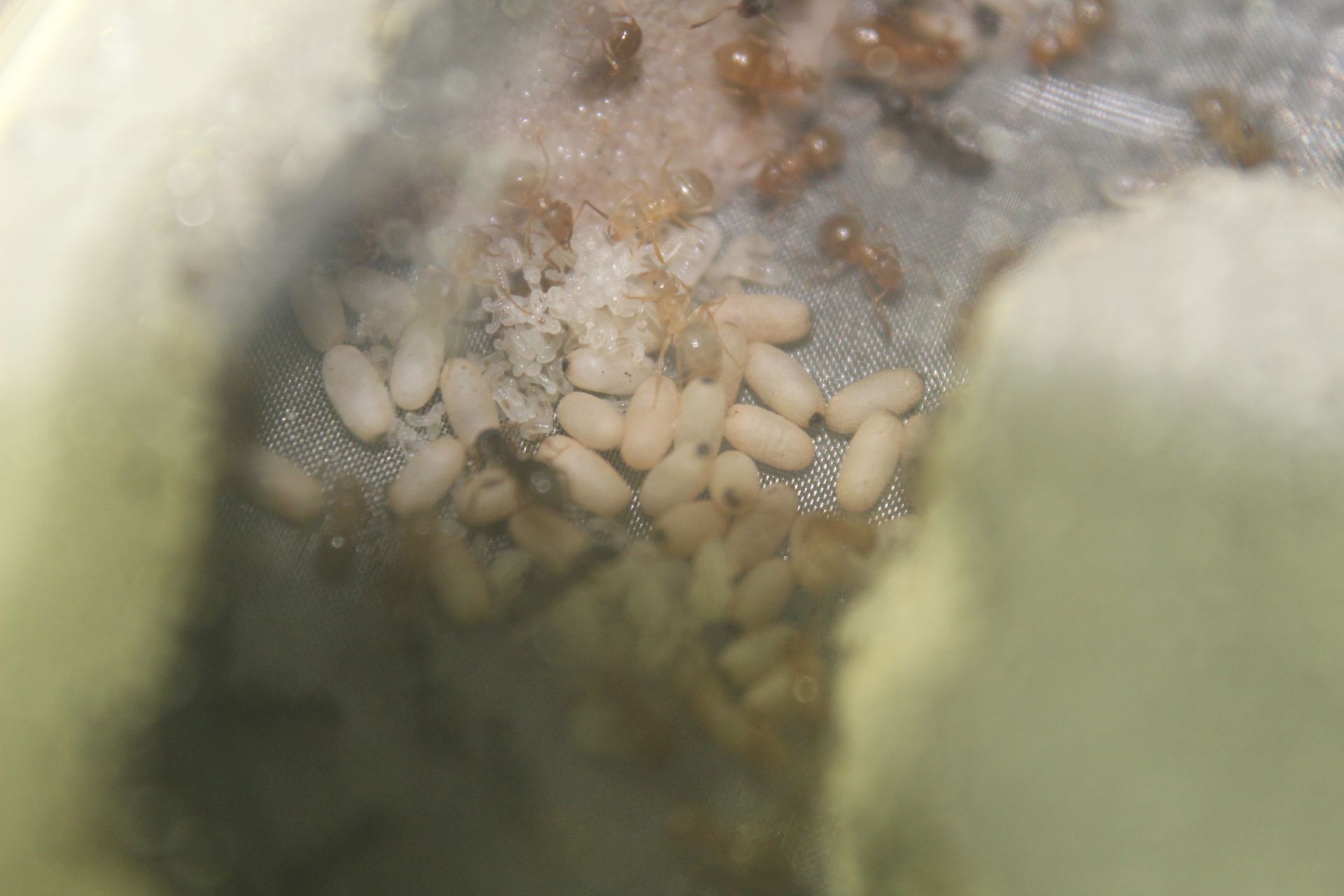
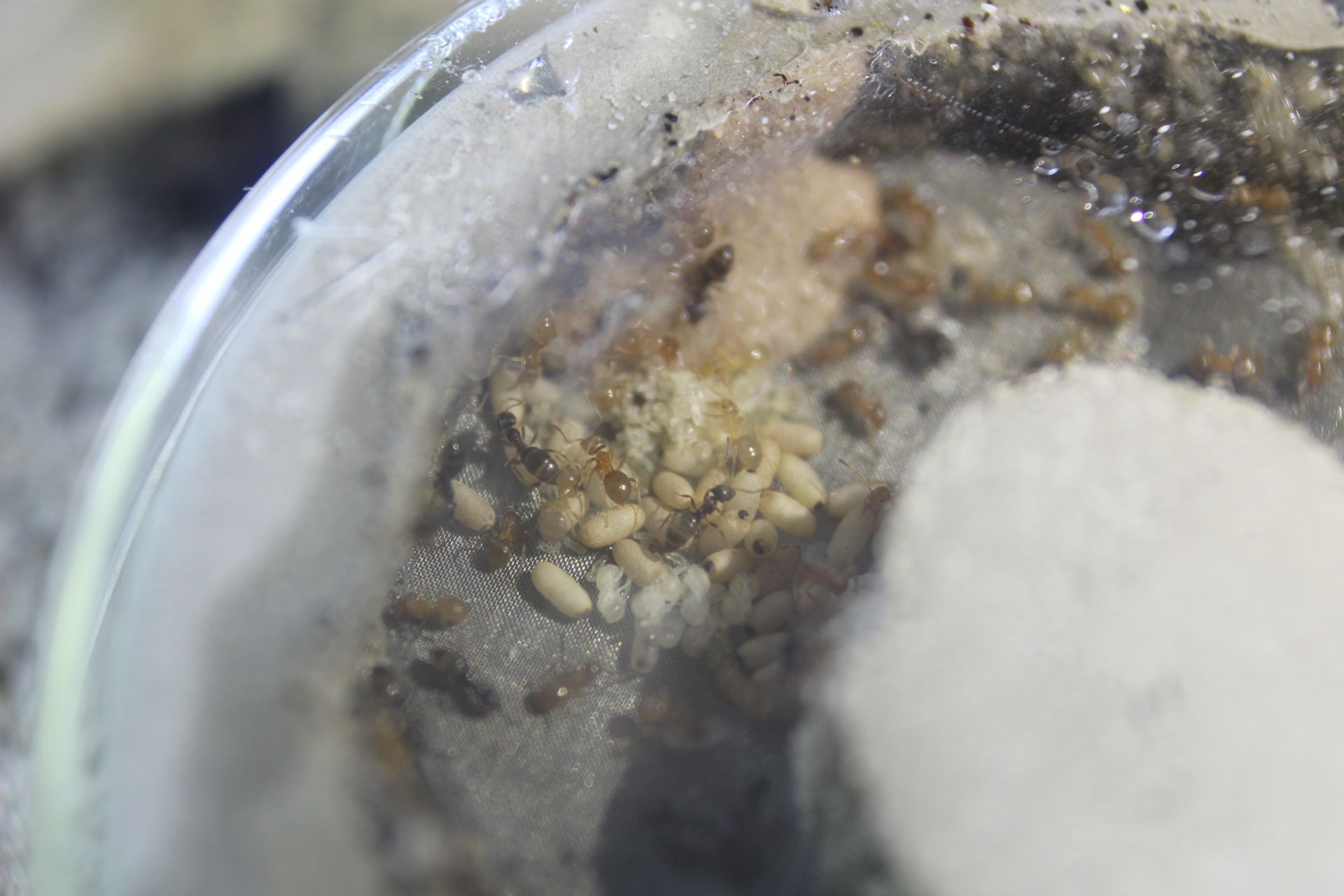
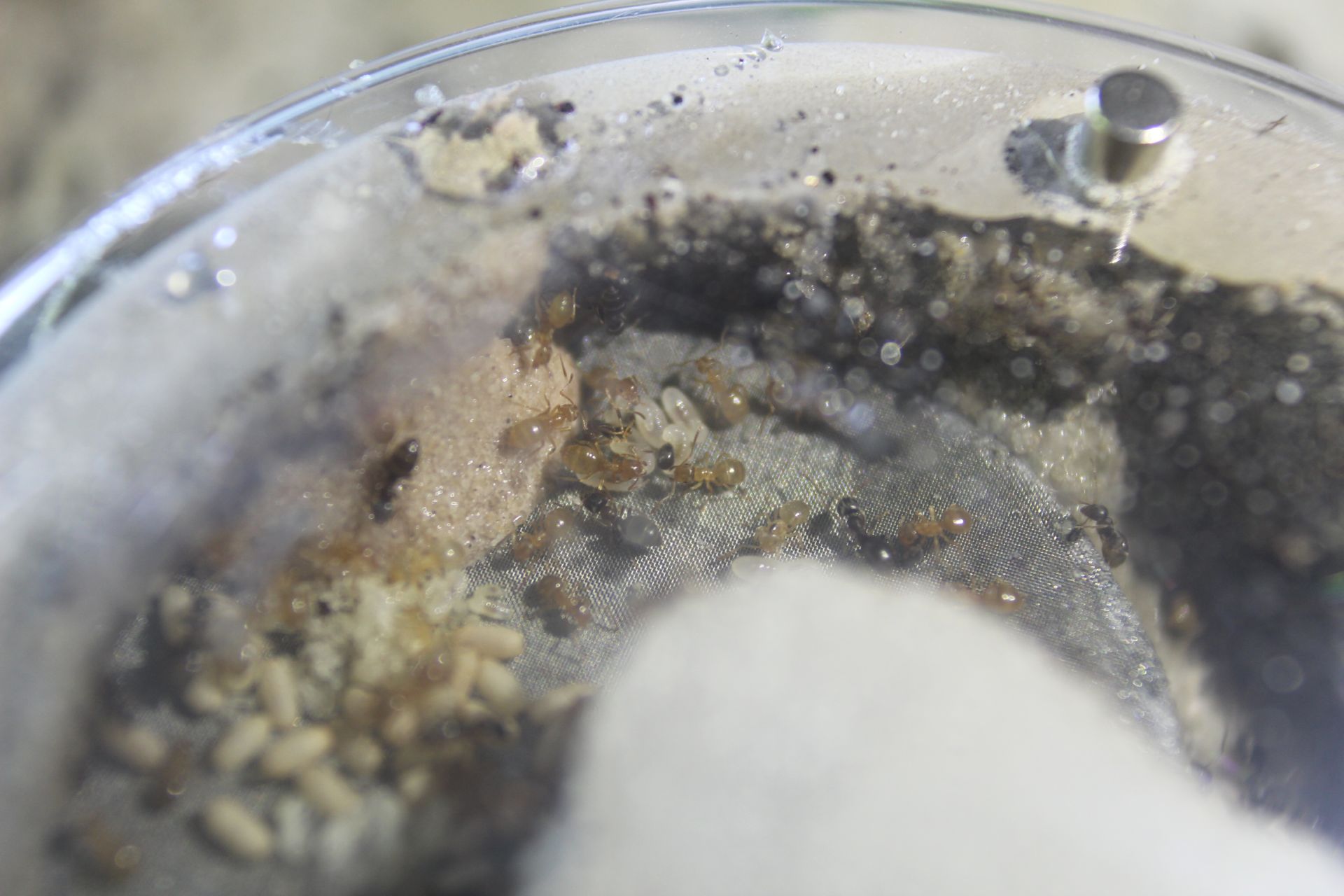
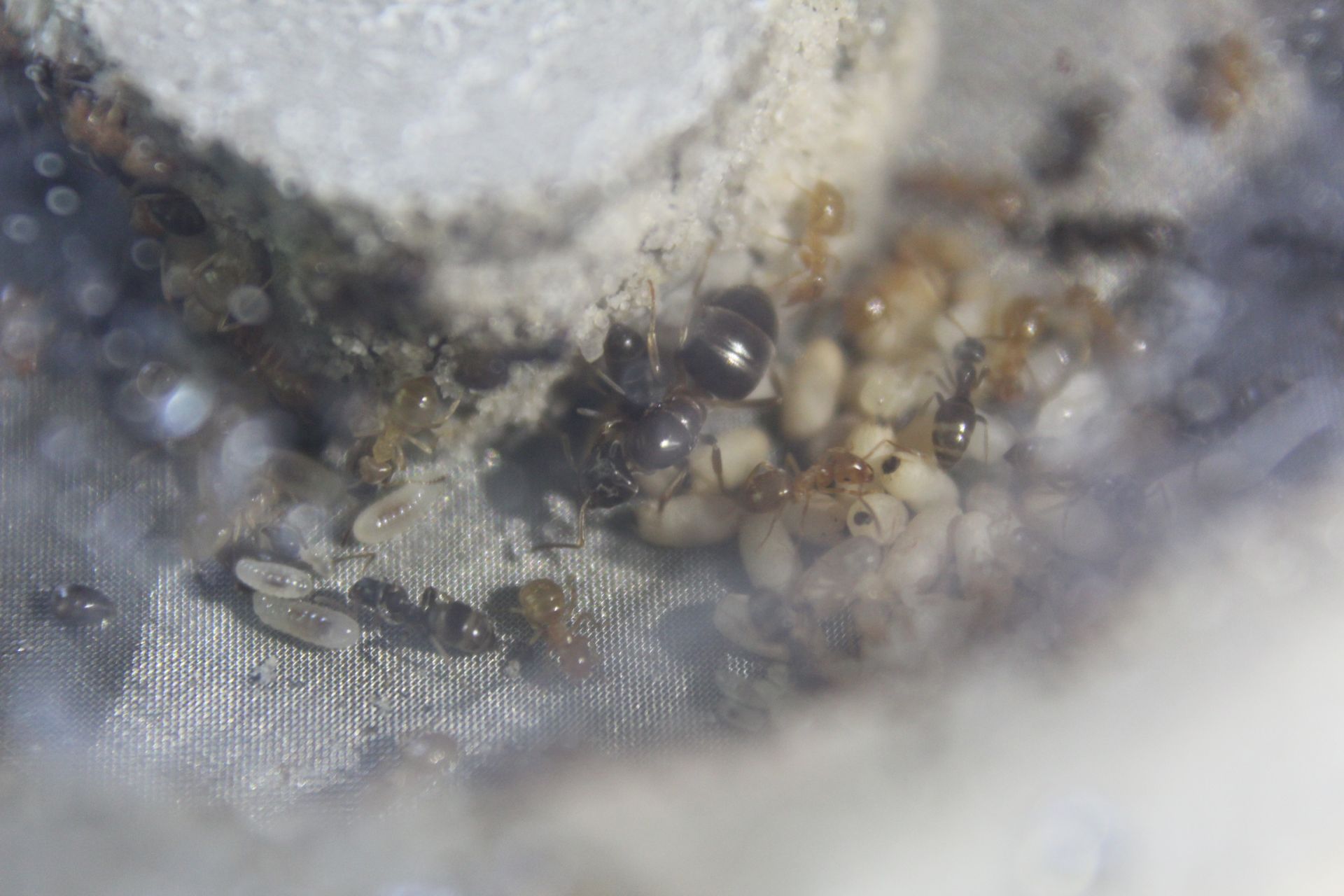
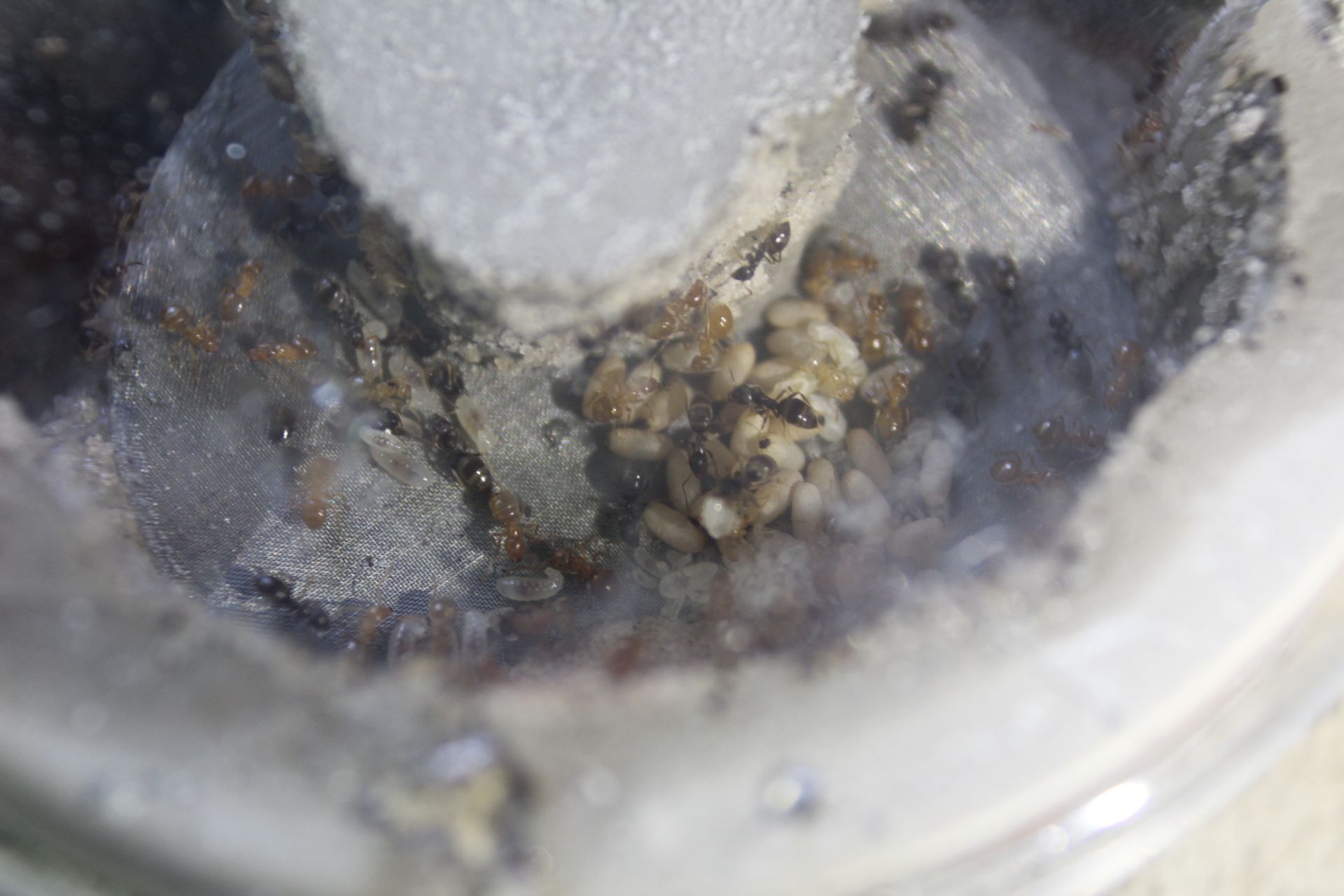
A mature queen of speculiventris or aphidicola. I don't know whose picture this is, since it was sent to me by a friend.
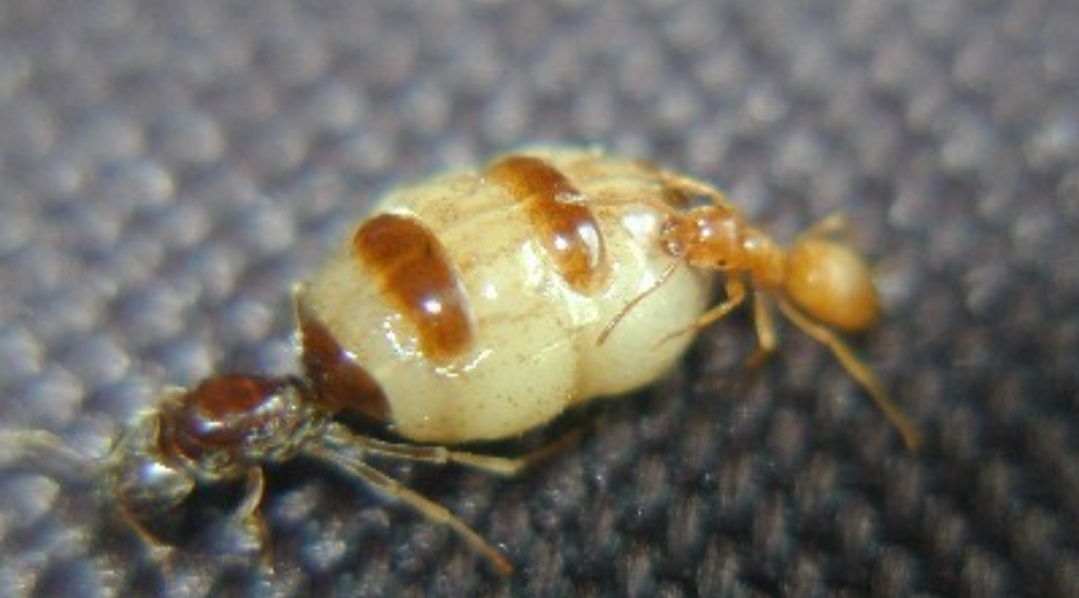
- CheetoLord02 likes this
Ant Keeping & Ethology Discord - 2000+ Members and growing
Statesideants.com - order live ants legally in the US
#79
 Offline
-
Posted May 31 2020 - 7:57 PM
Offline
-
Posted May 31 2020 - 7:57 PM
5/31/20
The large colony on this journal which I've referred to as Lasius speculiventris turned out to be L. aphidicola (which is amazing cause that's what I called them originally). One of the workers died and I identified it as so.
The large colony has had another decent batch of workers come in! There's definitely more Lasius aphidicola workers than L. americanus now, and although there's less pupae, more larvae has pupated and the flow of workers seems to be steady right now. The queen has also laid more eggs, and I think is still doing so. I checked on them today and saw at least 8 workers surrounding and tending to the queen, which I've never seen before. She's definitely been busy.
Three small colonies are still laying eggs, and one of them now has larvae. Here's a photo.
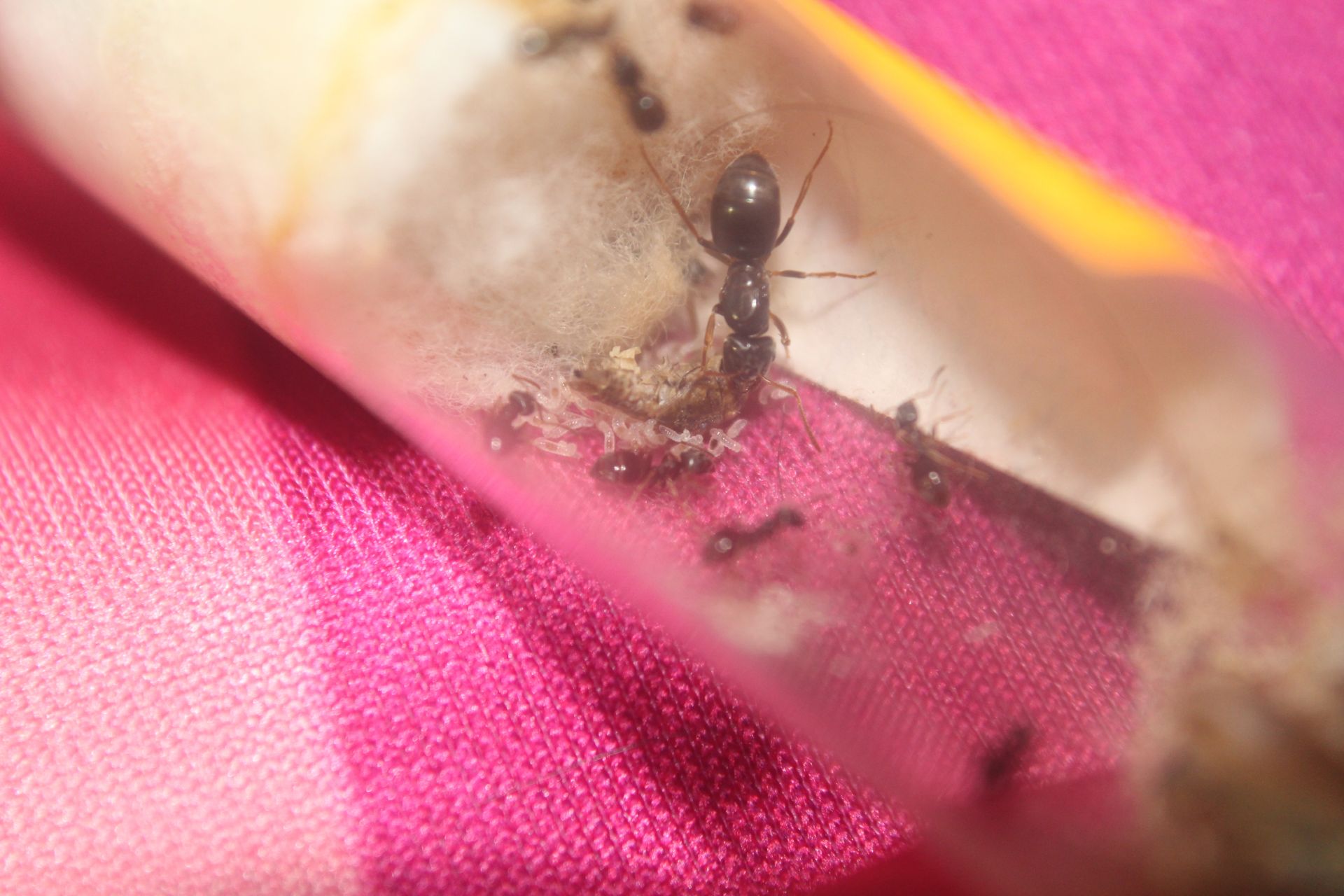
Here's photos of the big colony
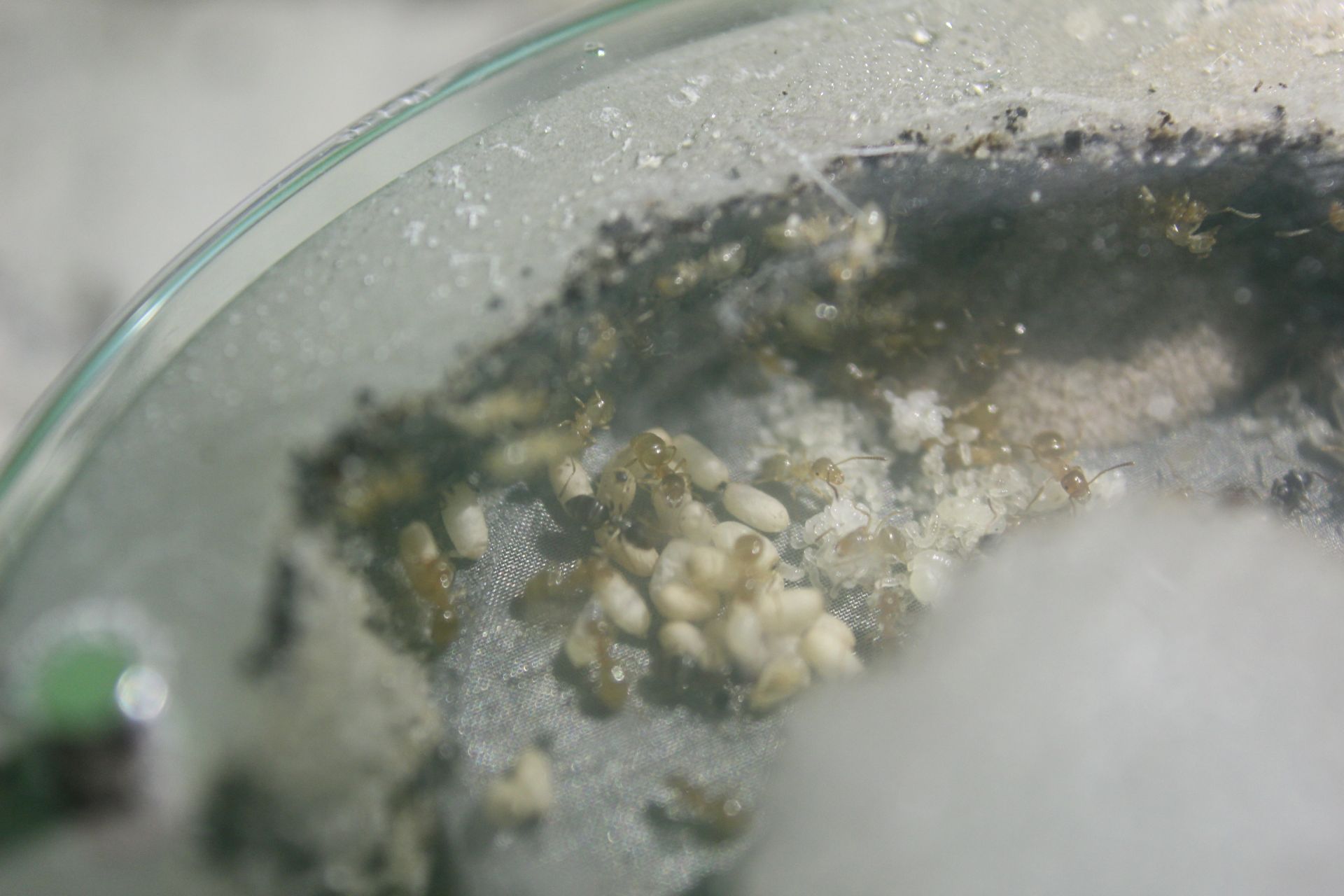
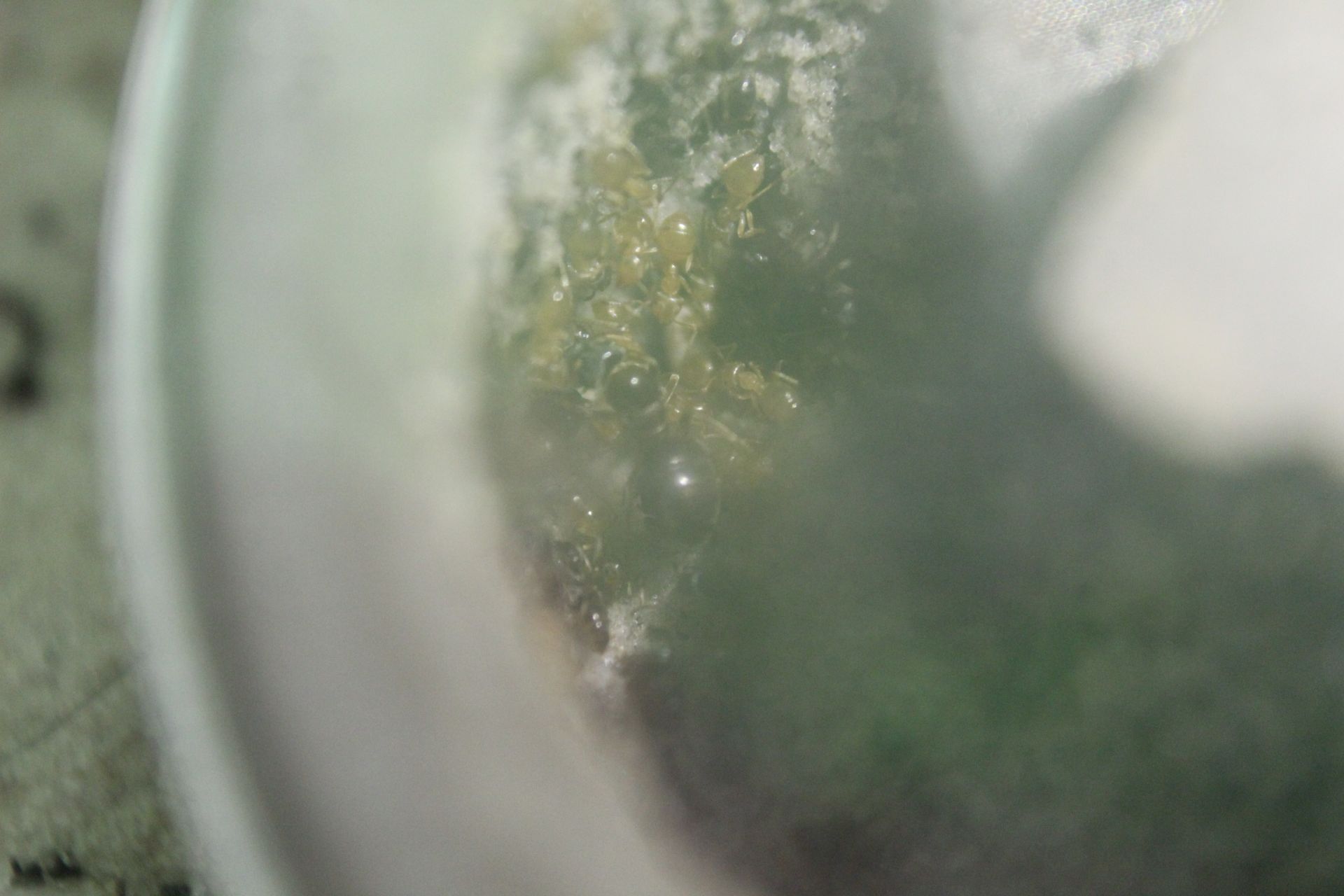
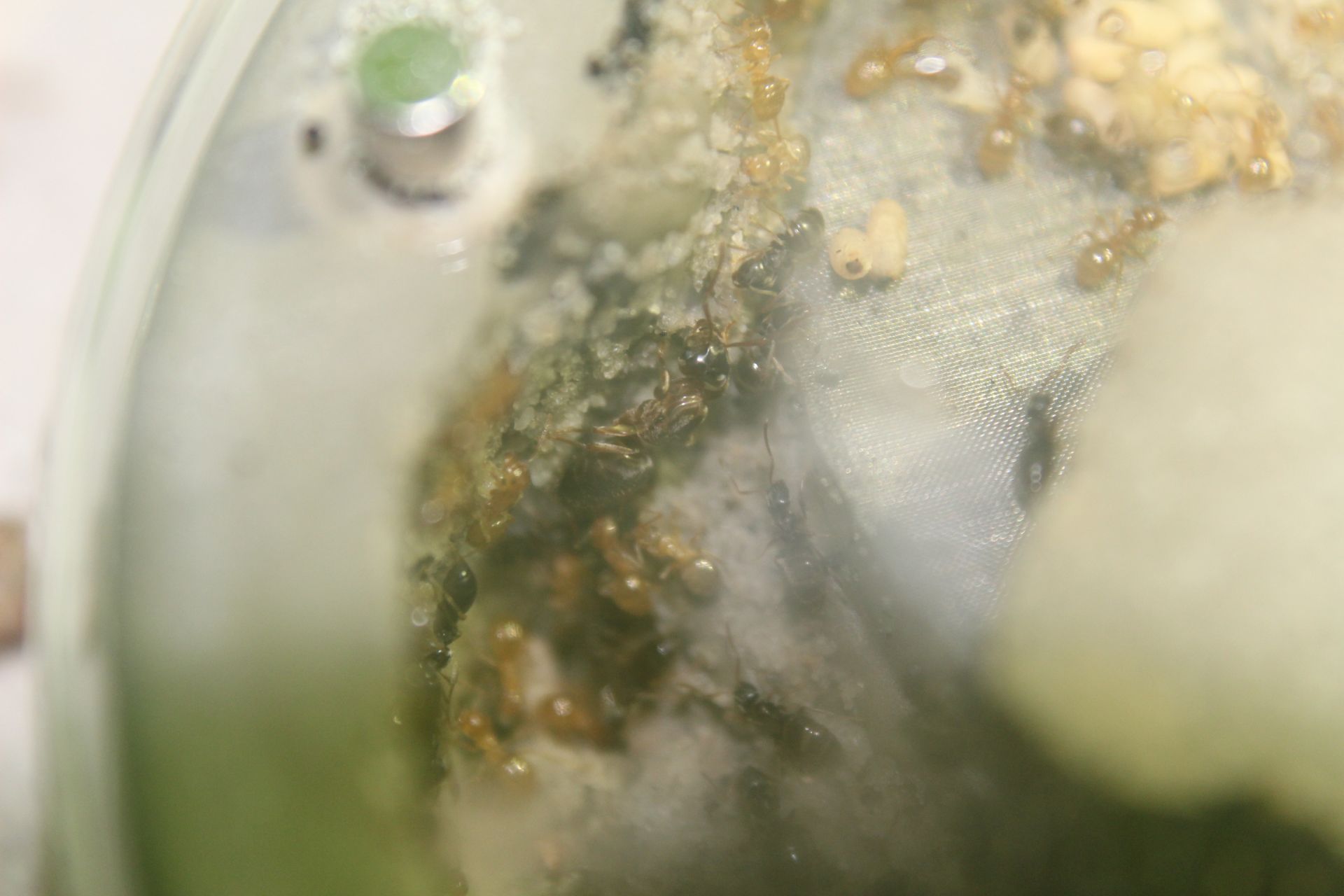
- CheetoLord02, ANTdrew and RushmoreAnts like this
Ant Keeping & Ethology Discord - 2000+ Members and growing
Statesideants.com - order live ants legally in the US
#80
 Offline
-
Posted May 31 2020 - 8:14 PM
Offline
-
Posted May 31 2020 - 8:14 PM
You da champ, man. That's some cool anting right there. It's harder to set up parasitic ants than I thought. Awesome job.
- AnthonyP163, ANTdrew and Zzz like this
"You don't get what you want. You get what you deserve".
Also tagged with one or more of these keywords: lasius, parasite, lasius parasite
0 user(s) are reading this topic
0 members, 0 guests, 0 anonymous users








